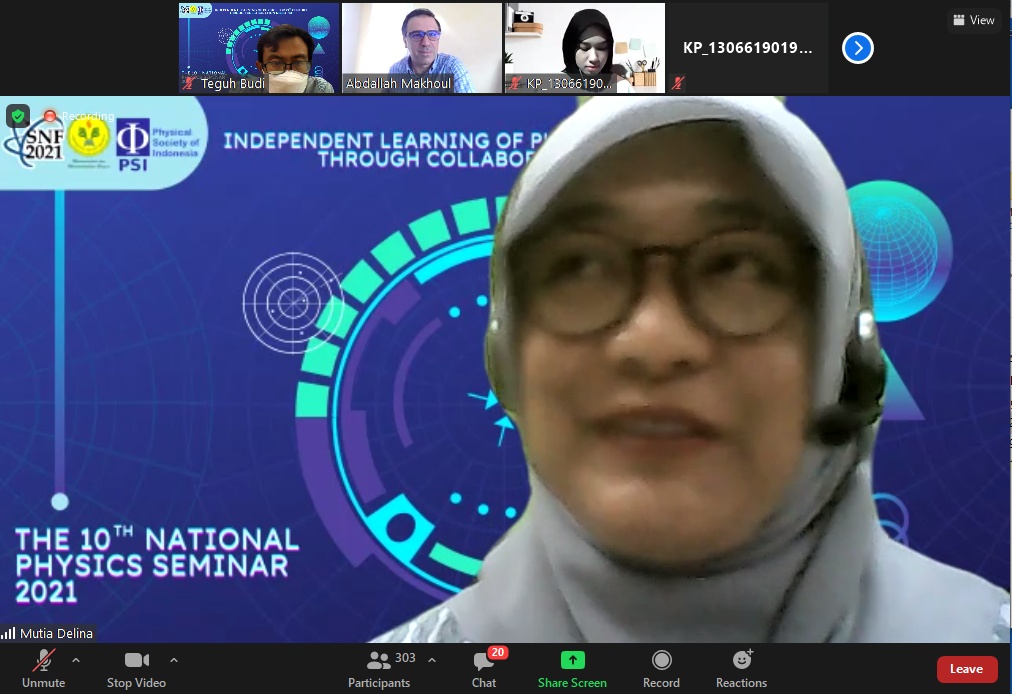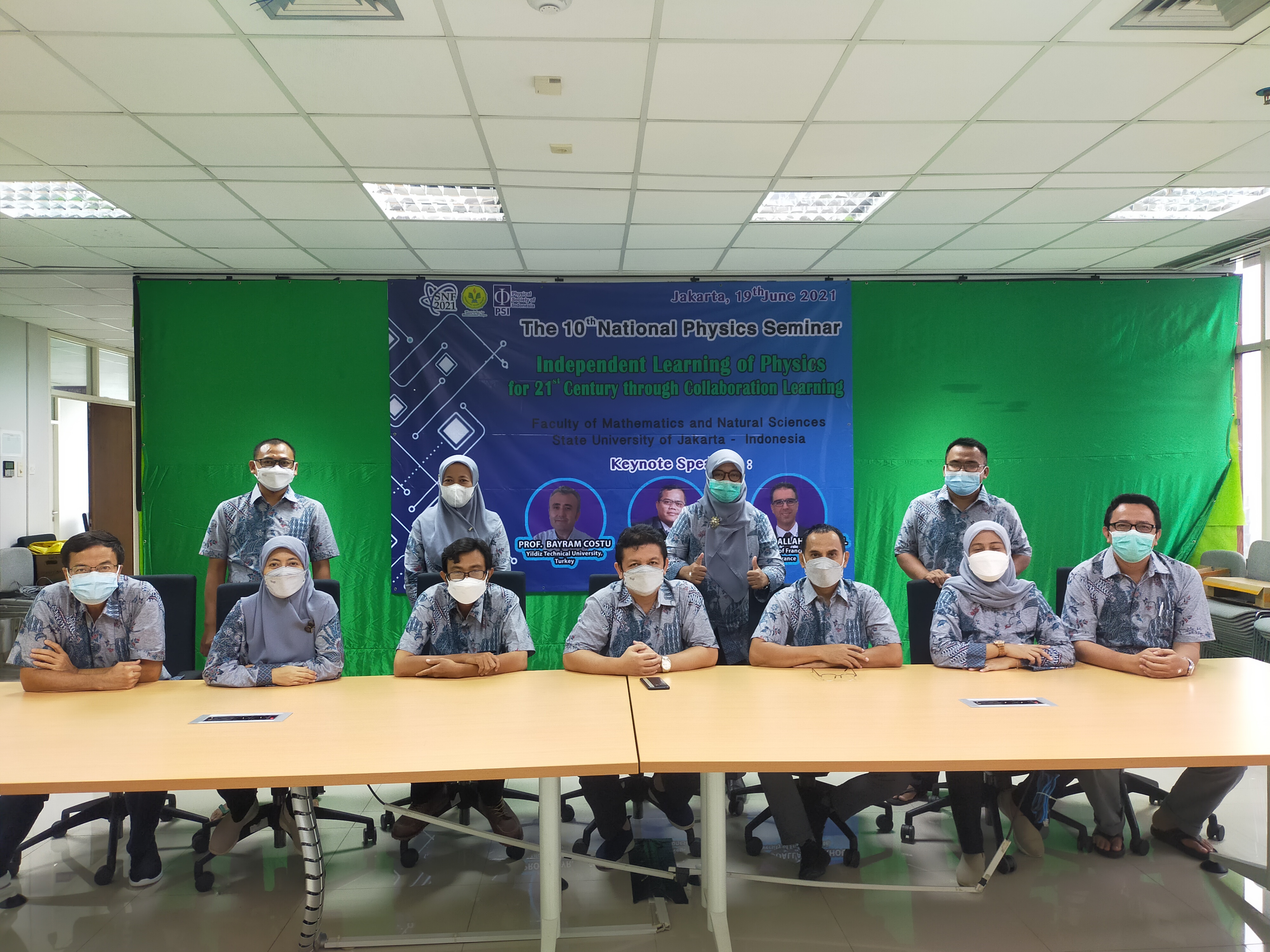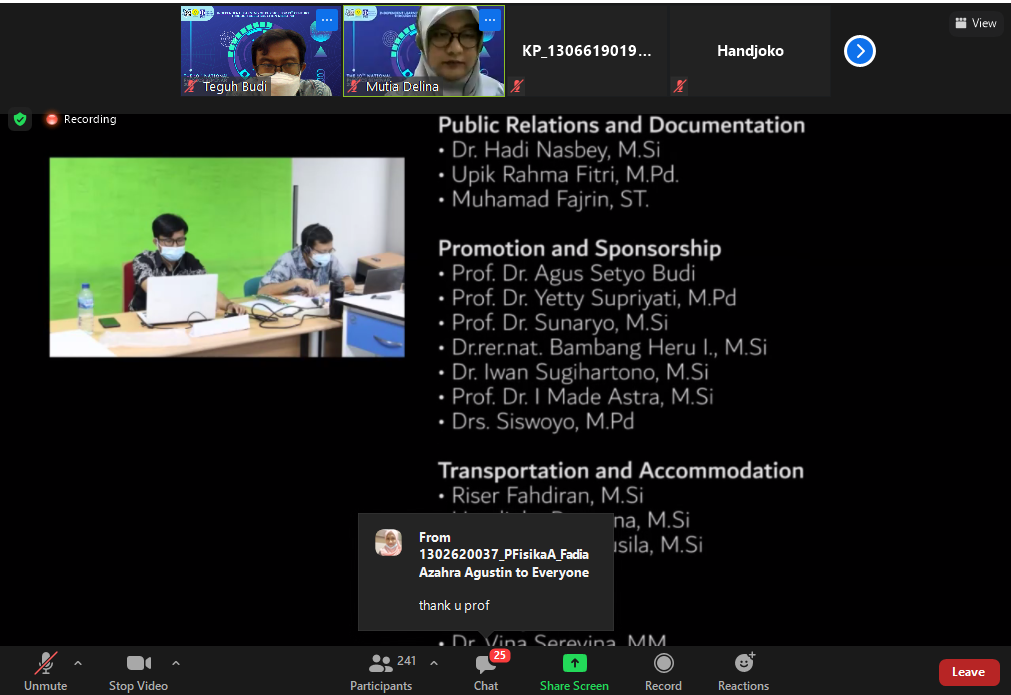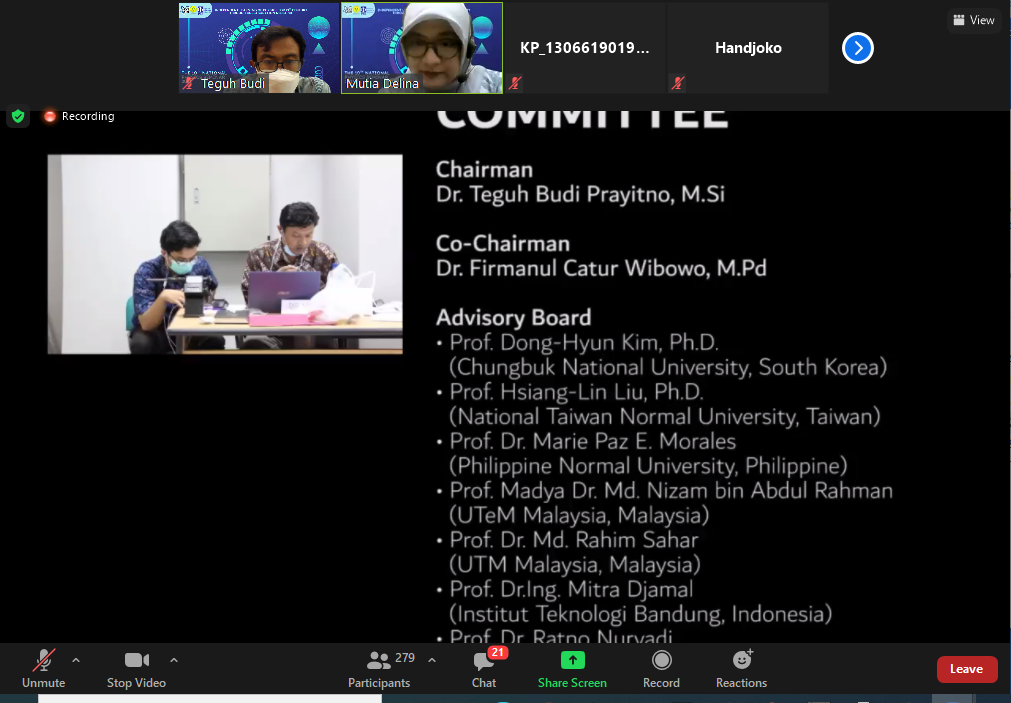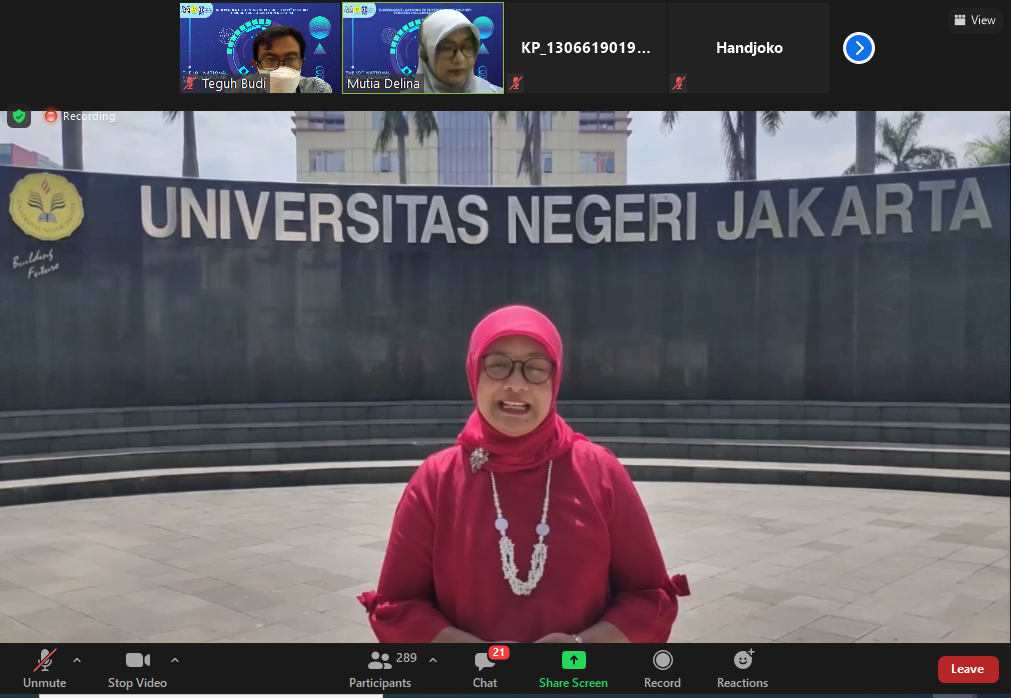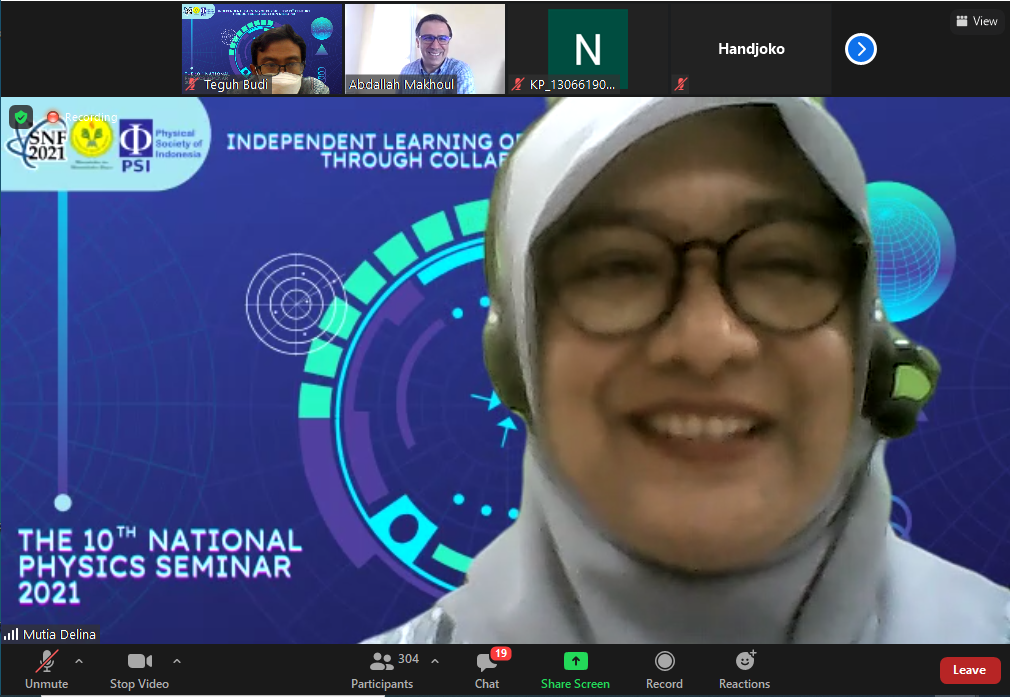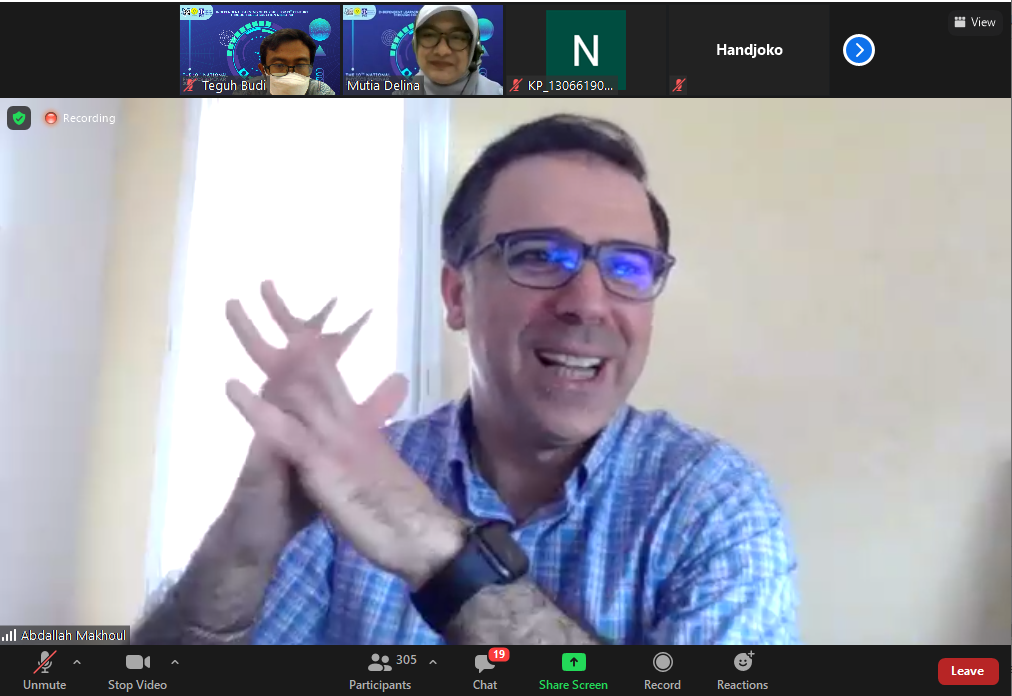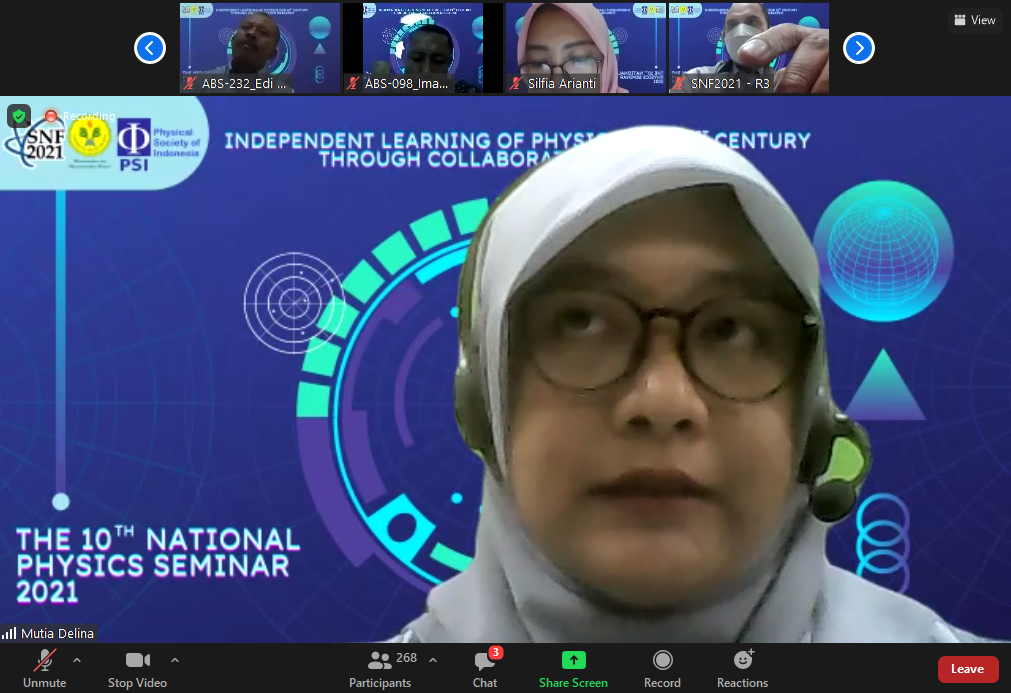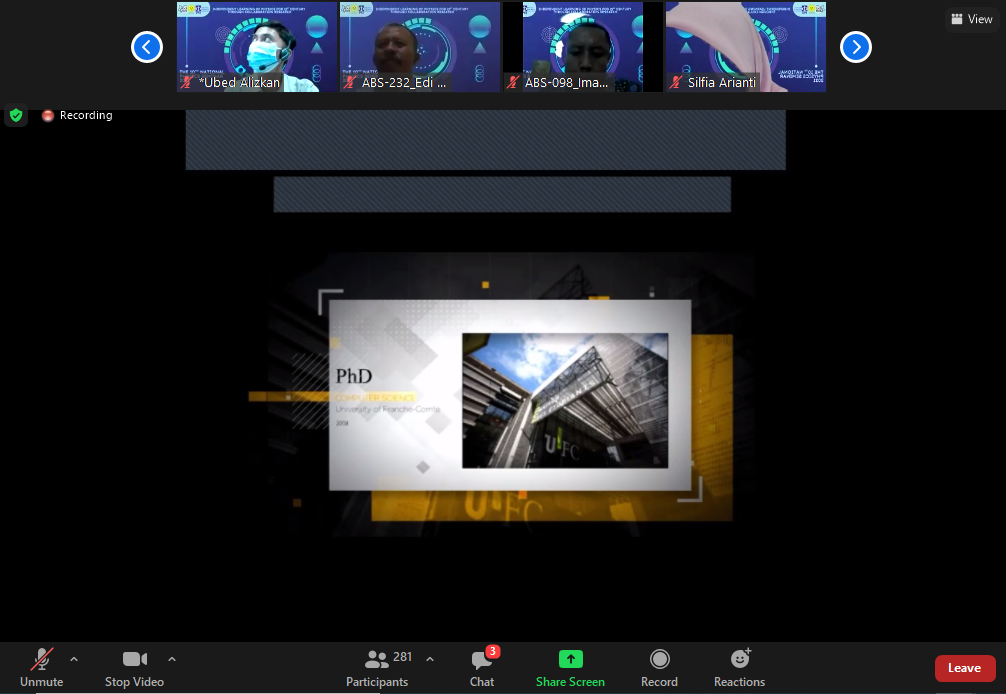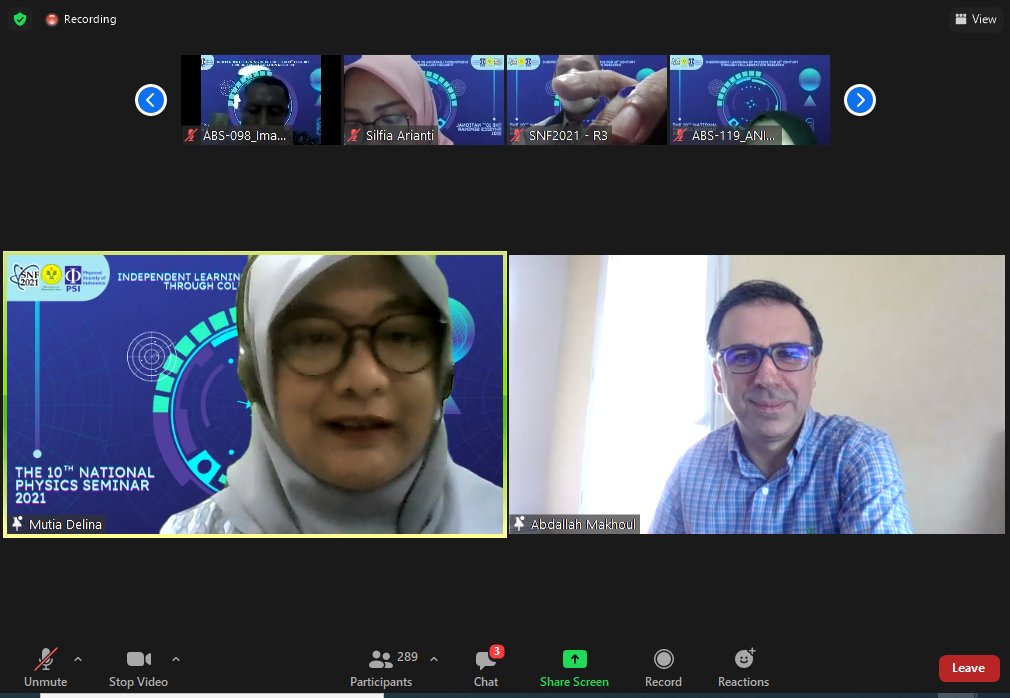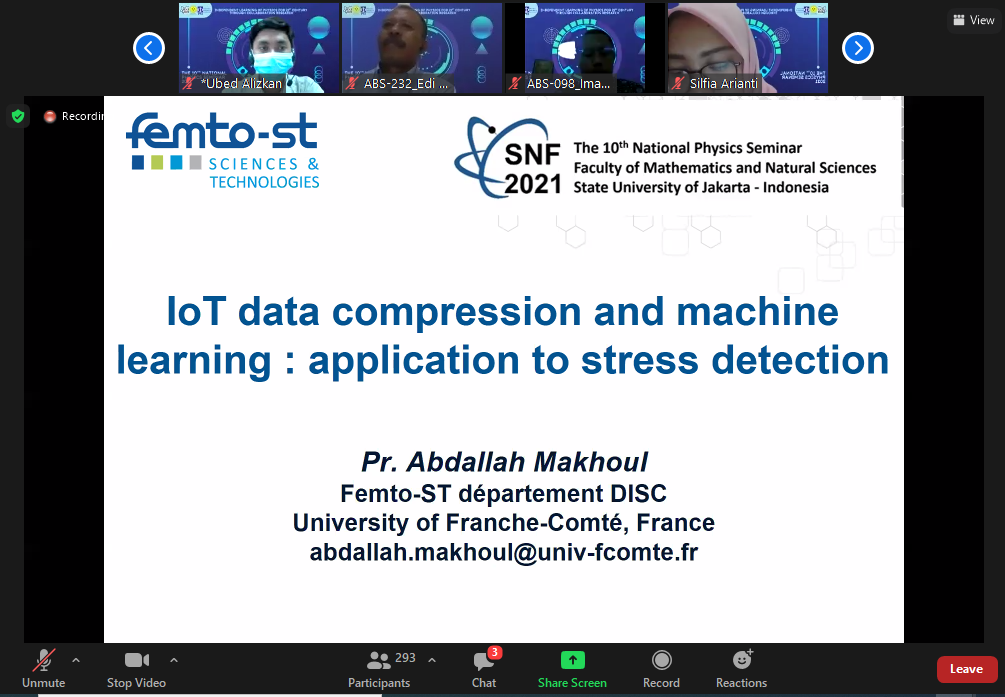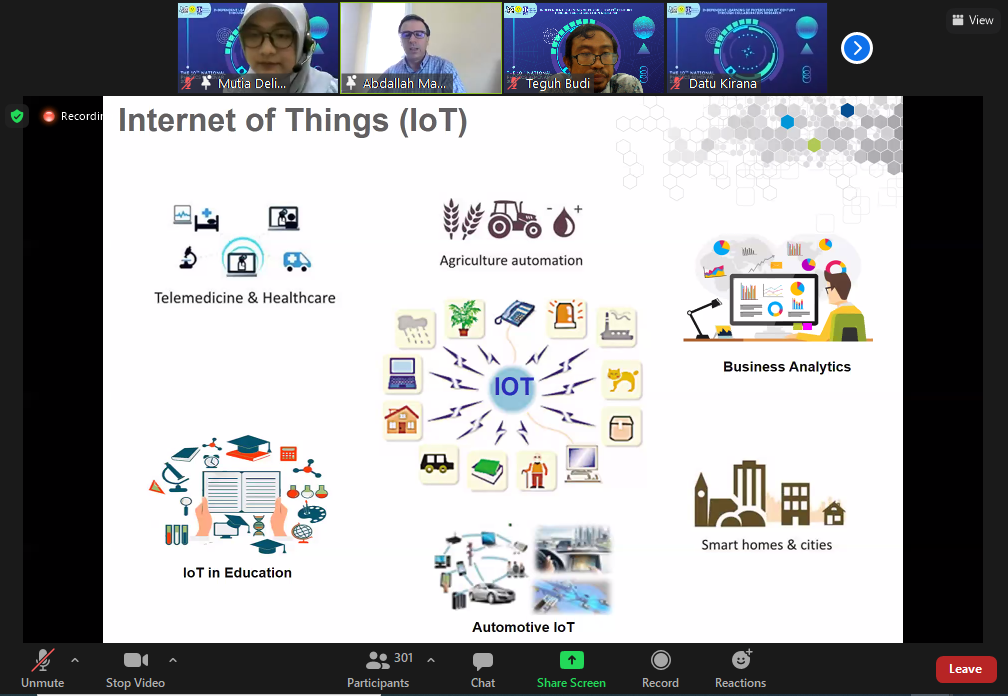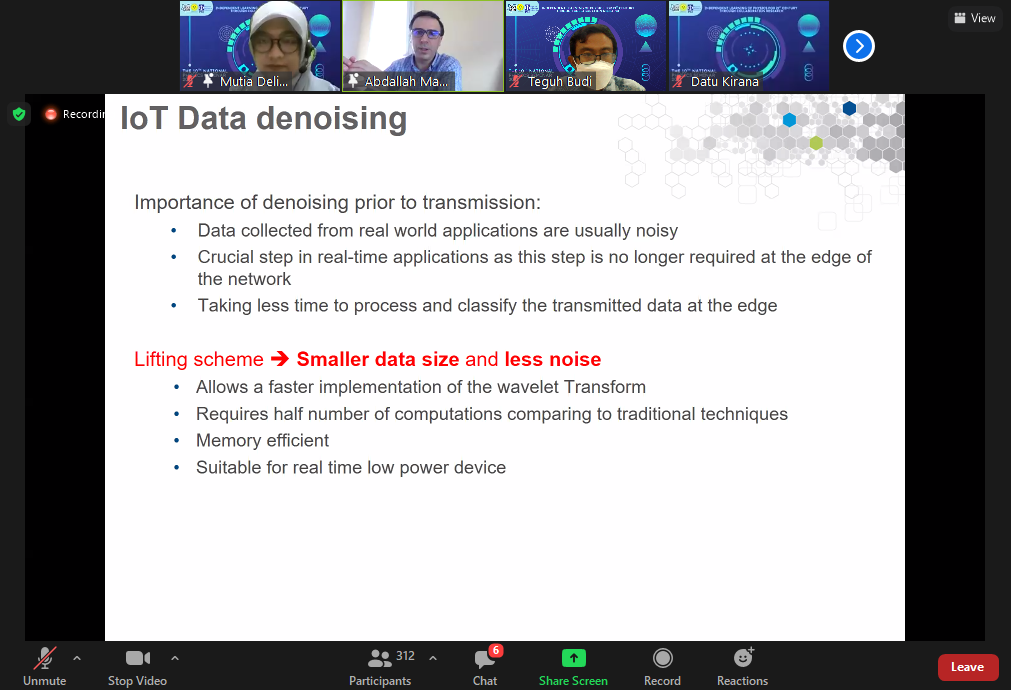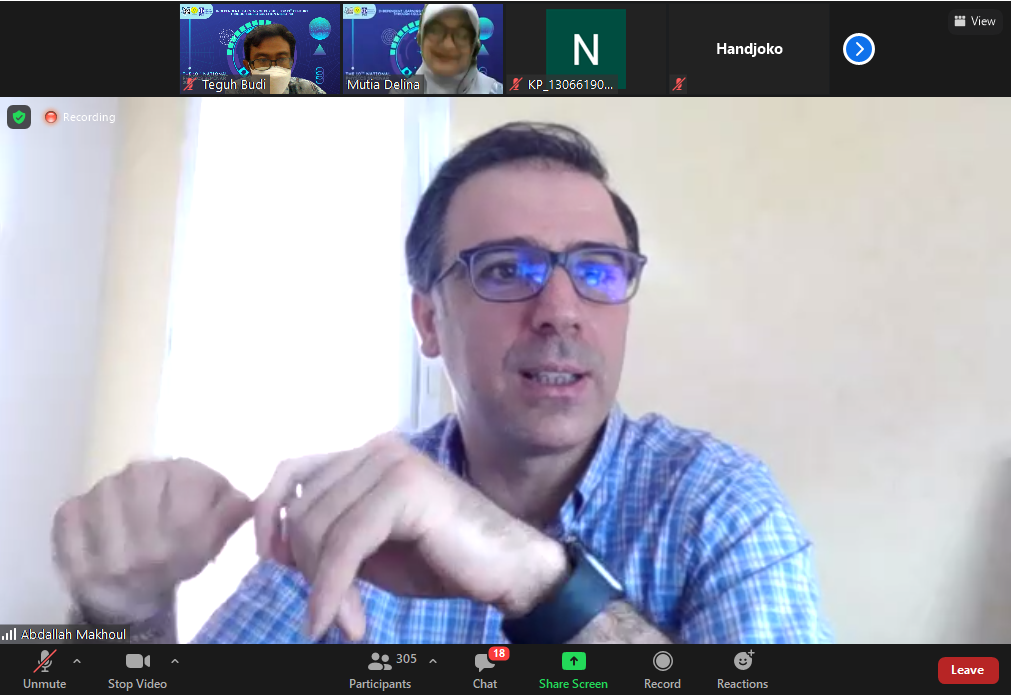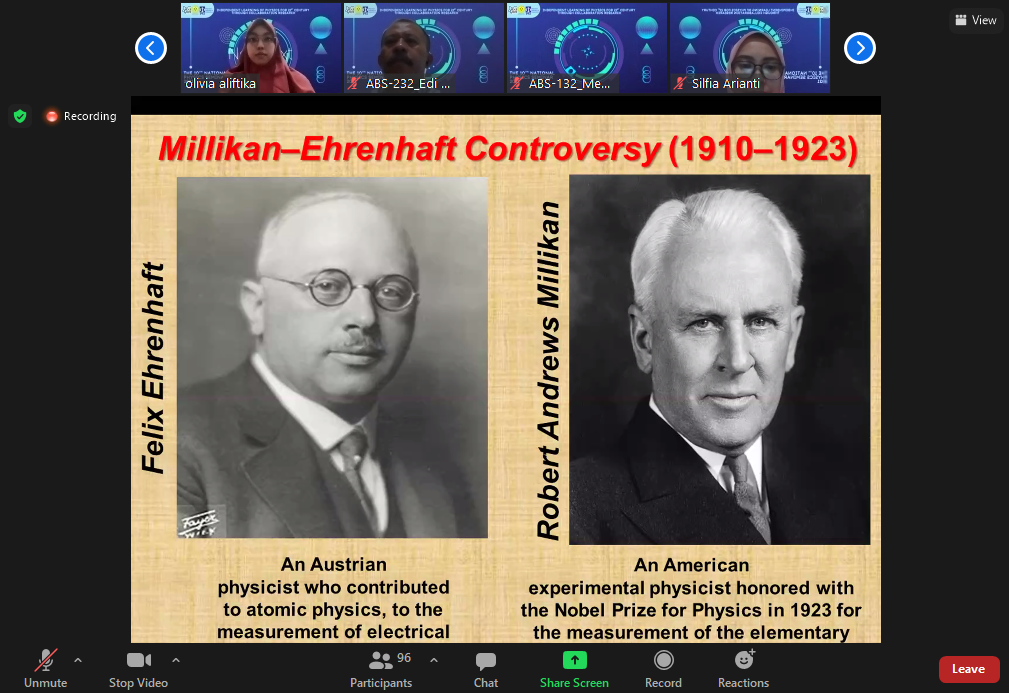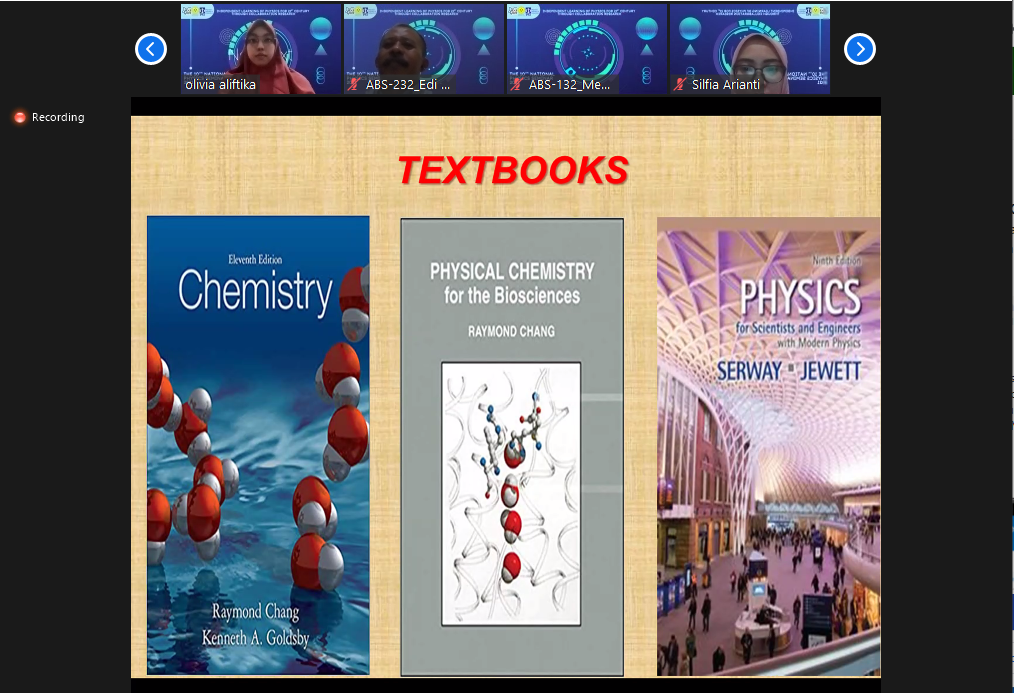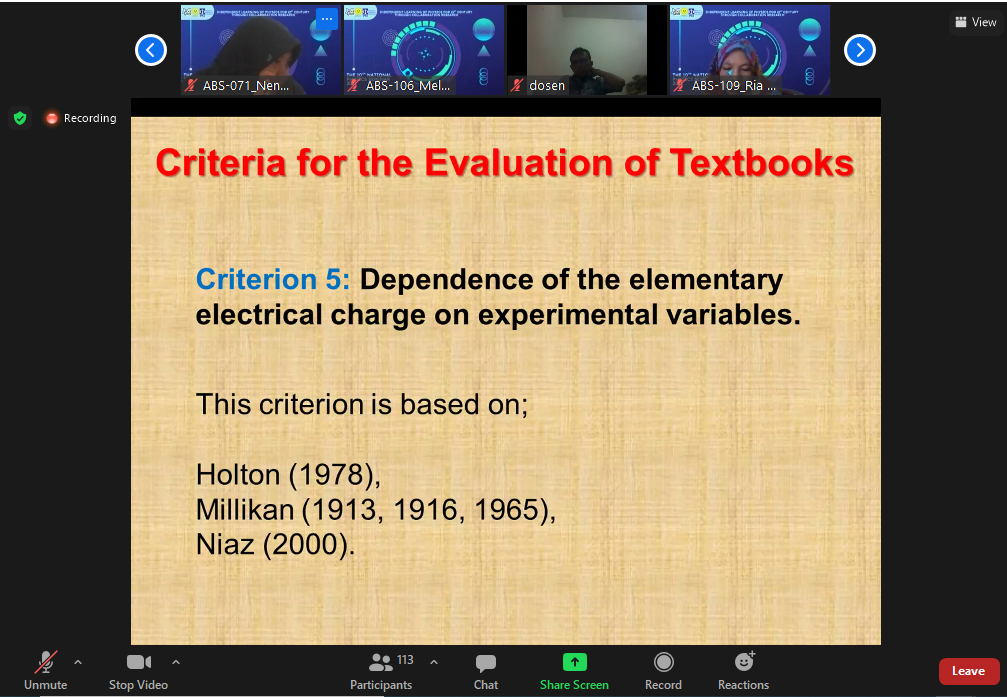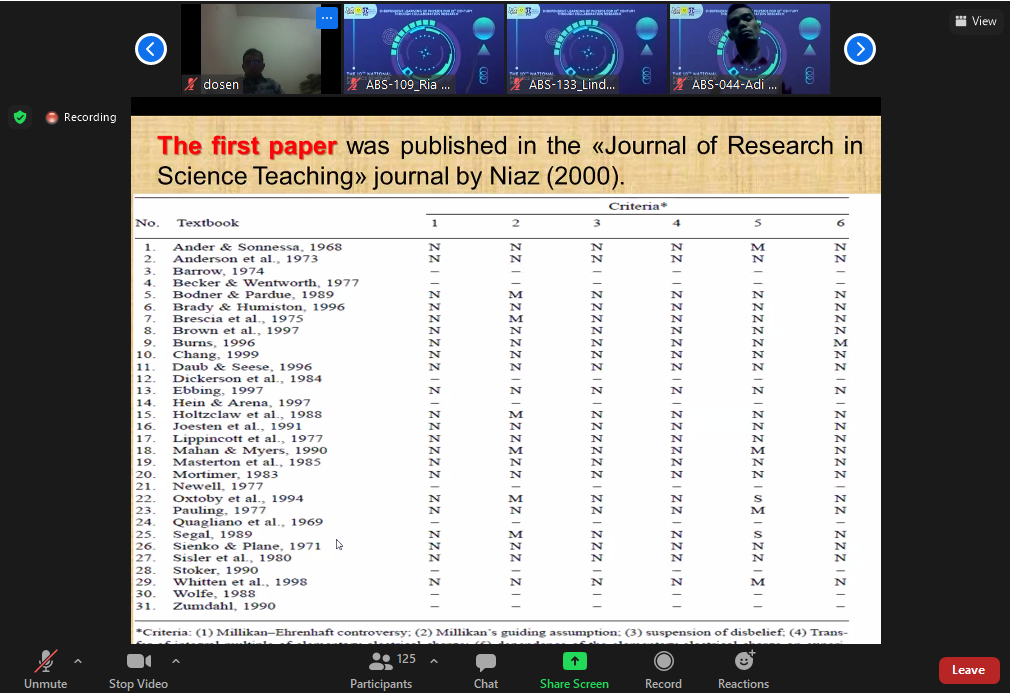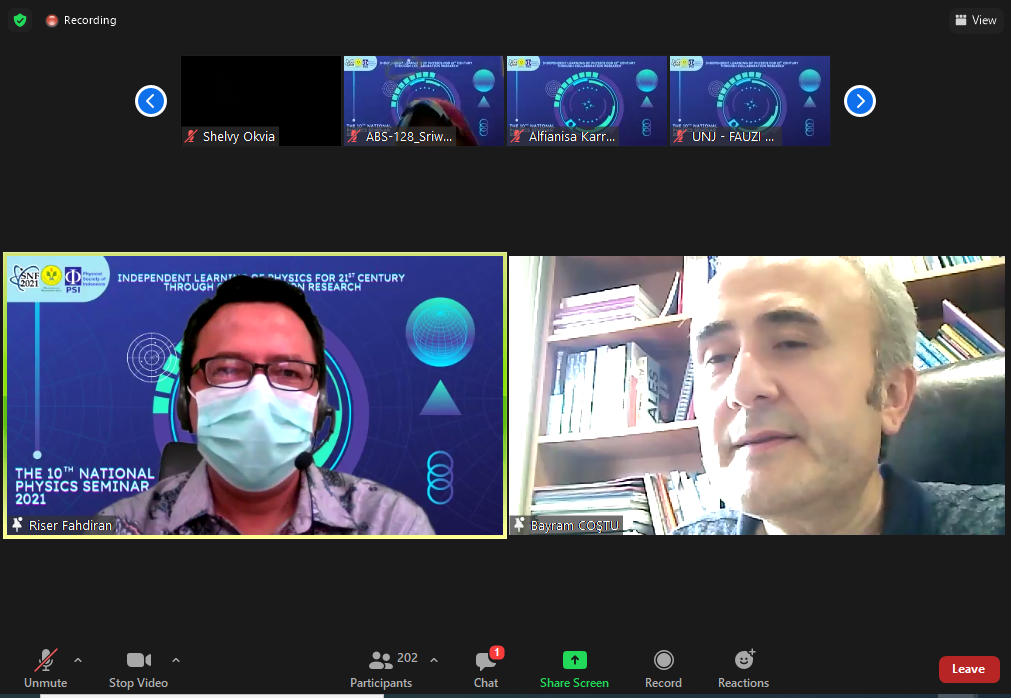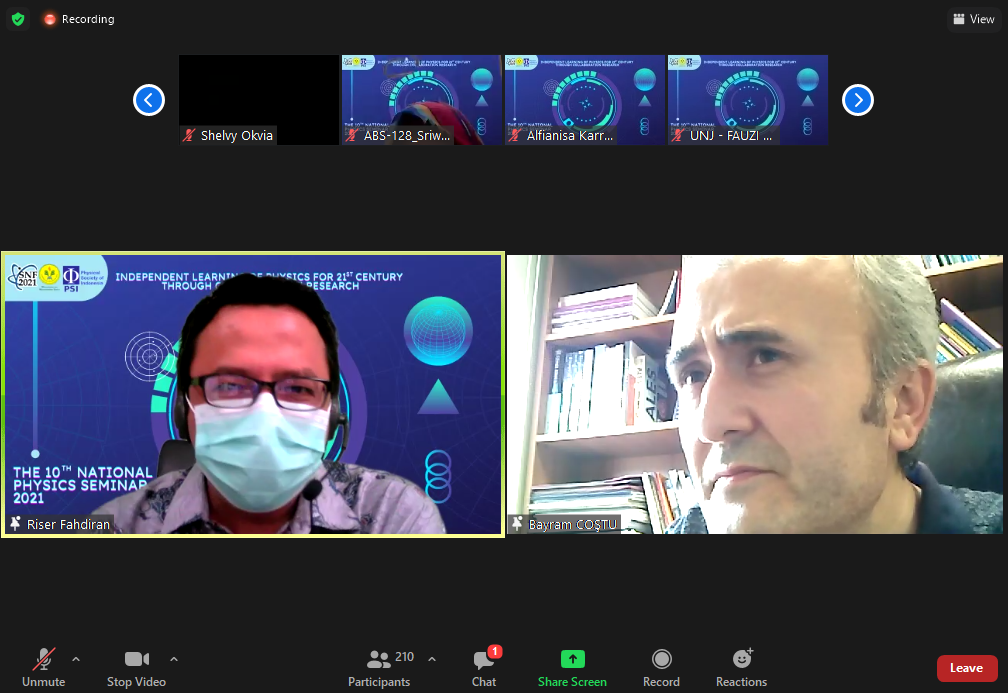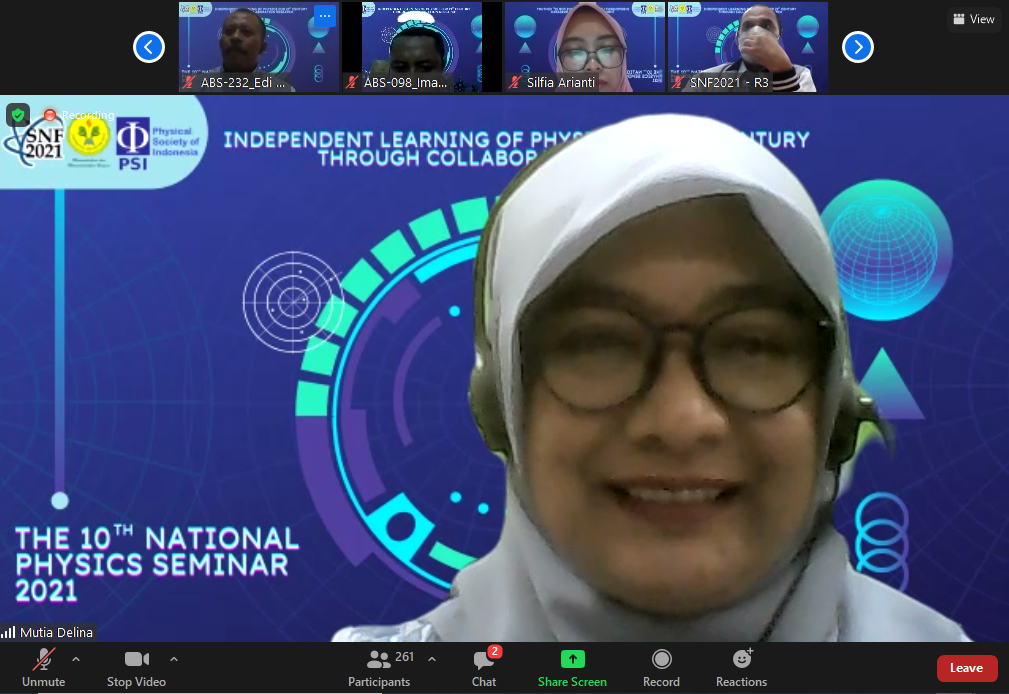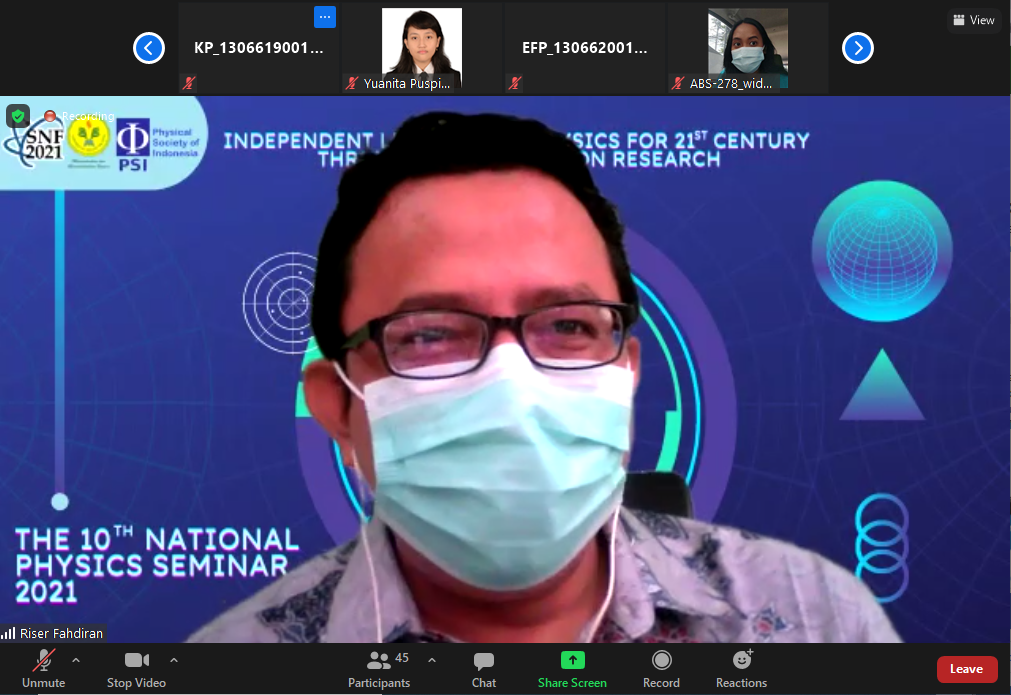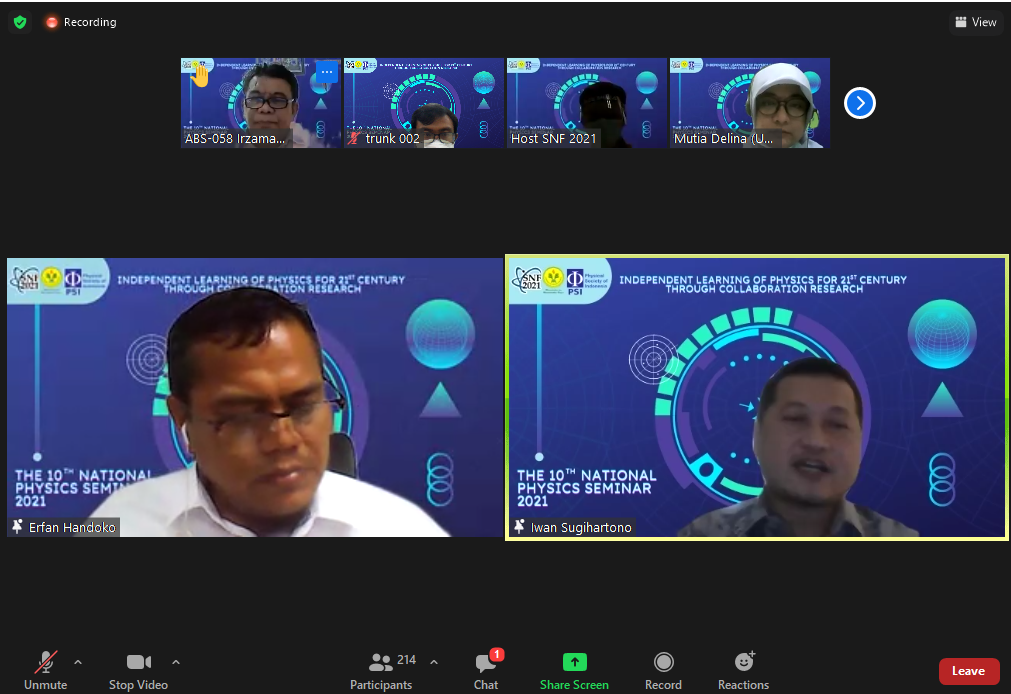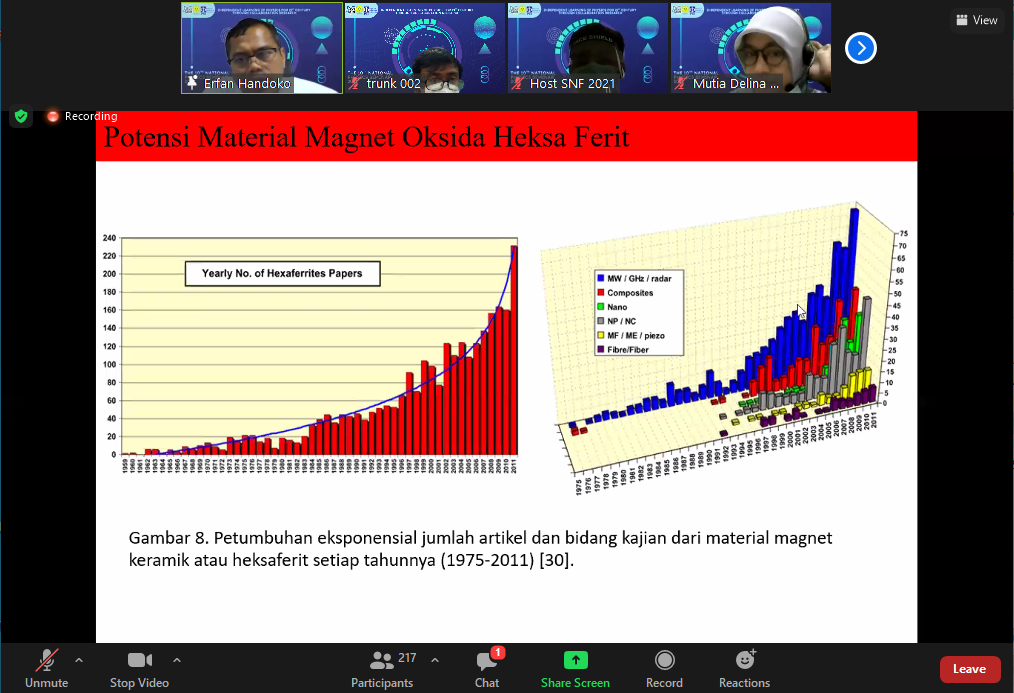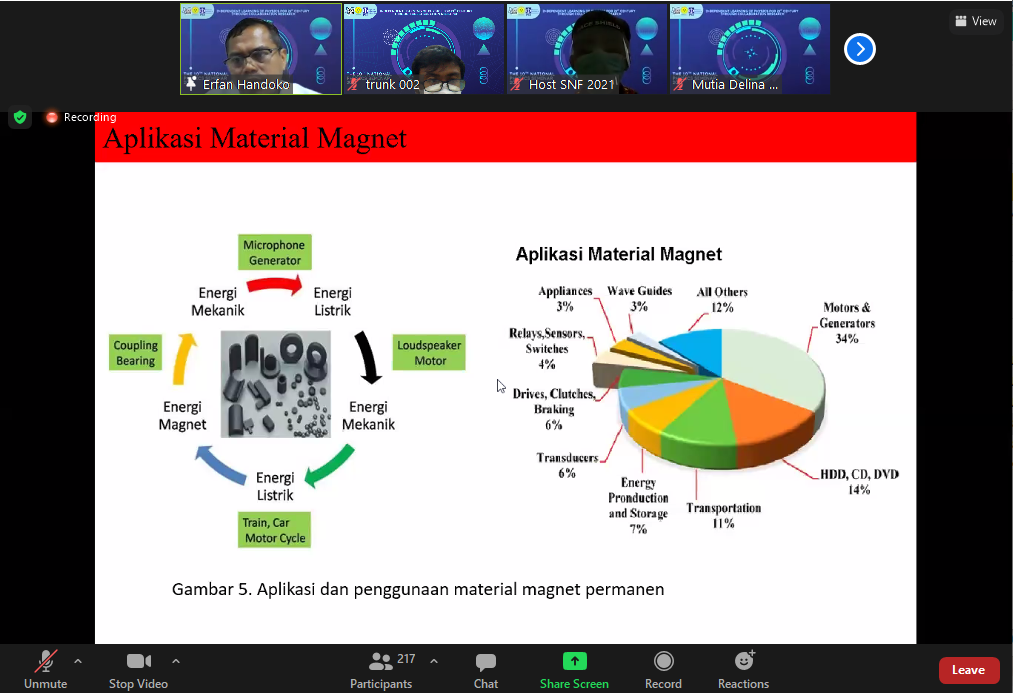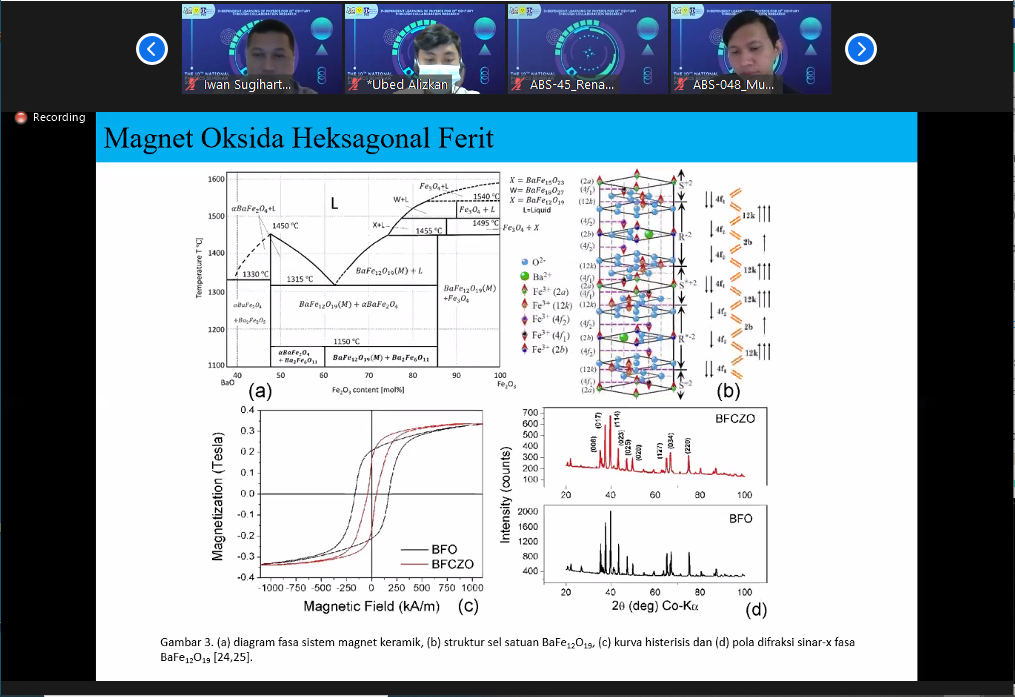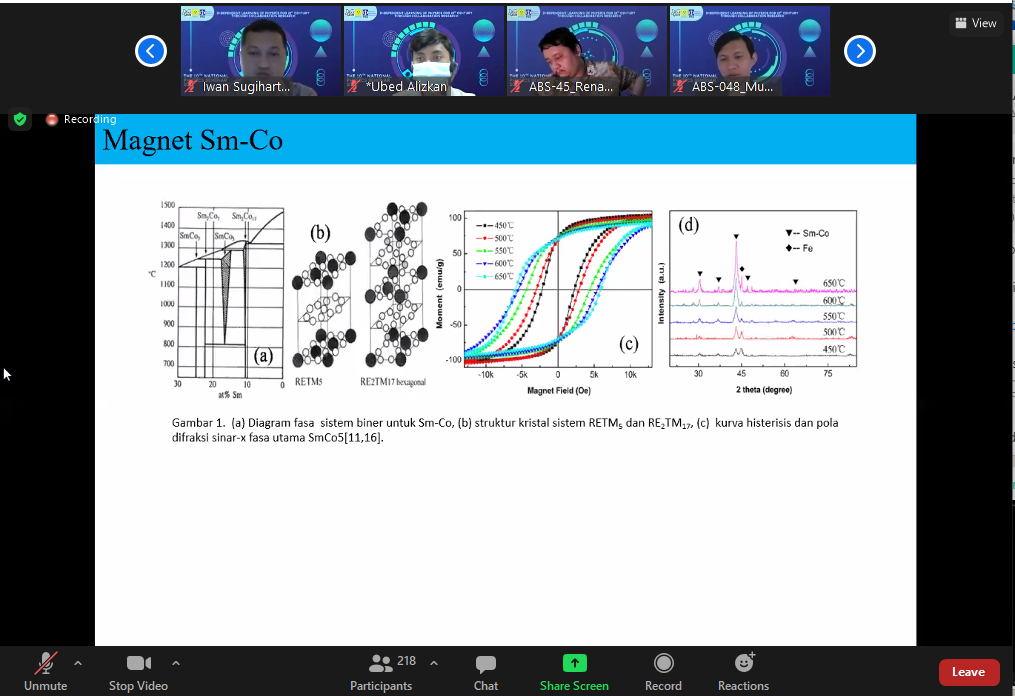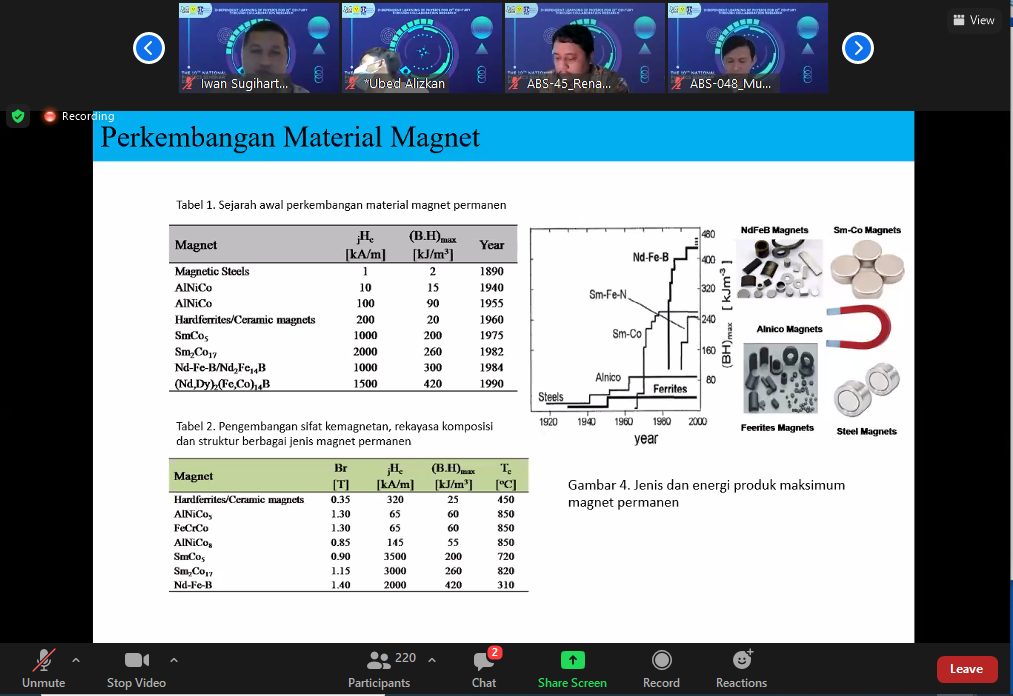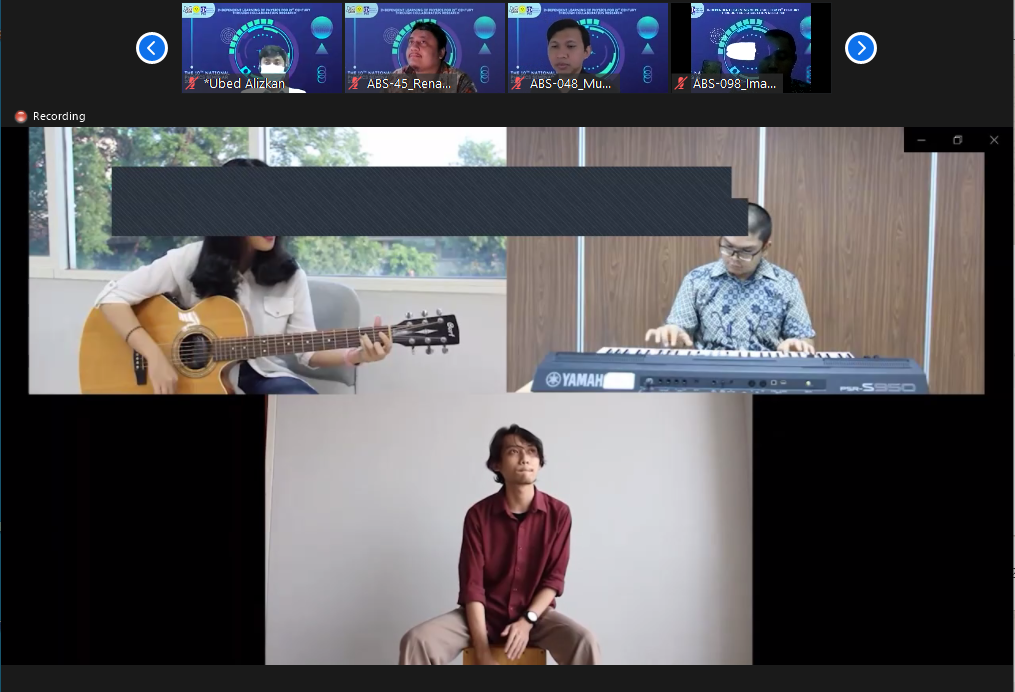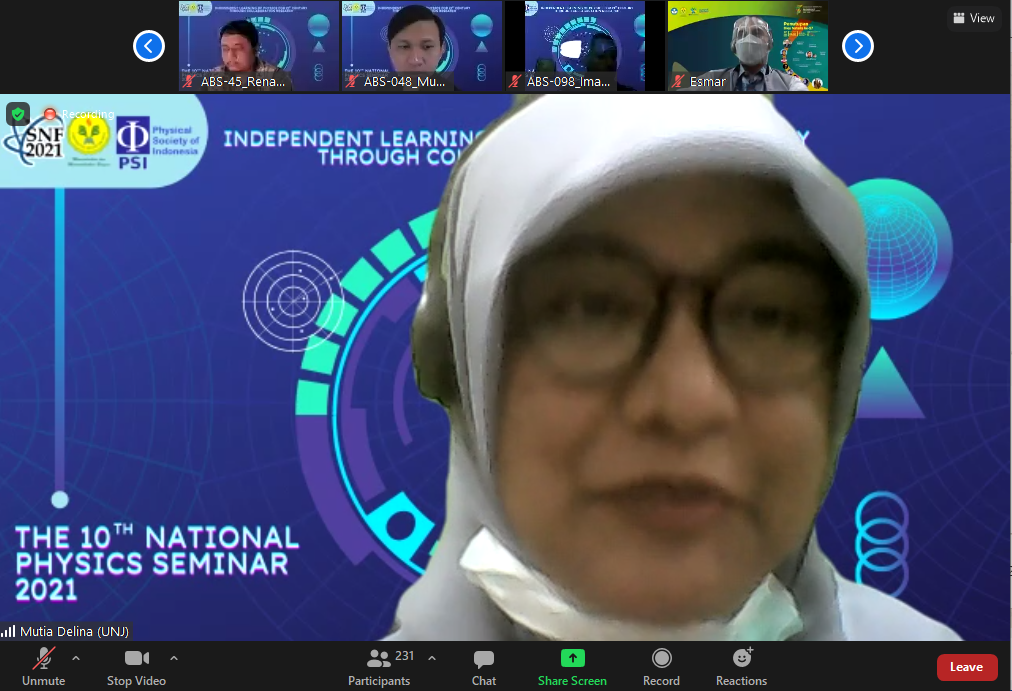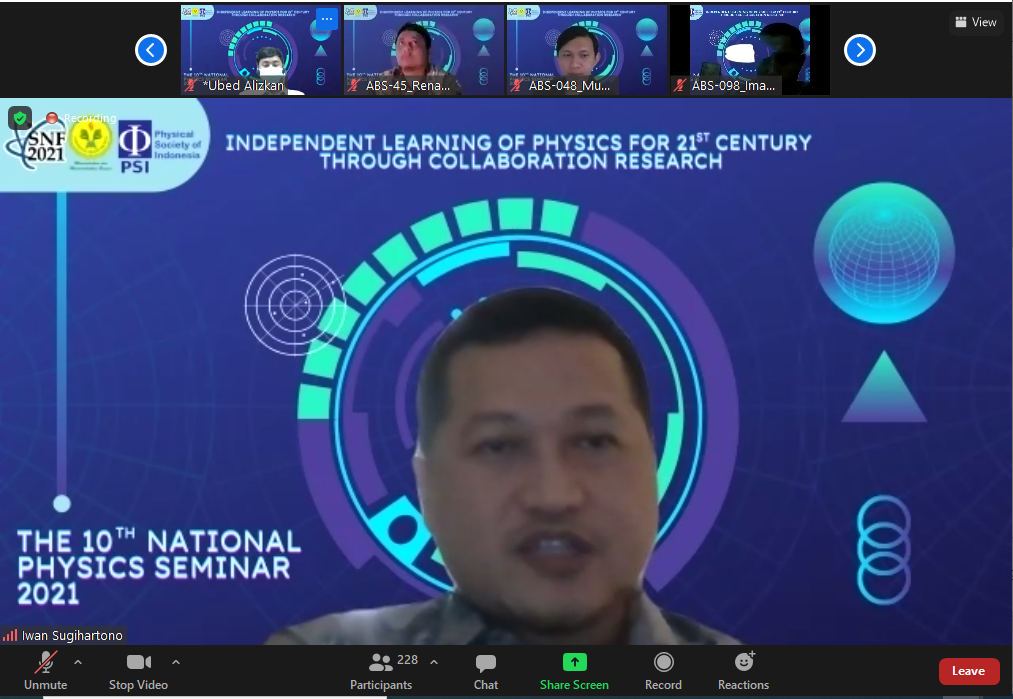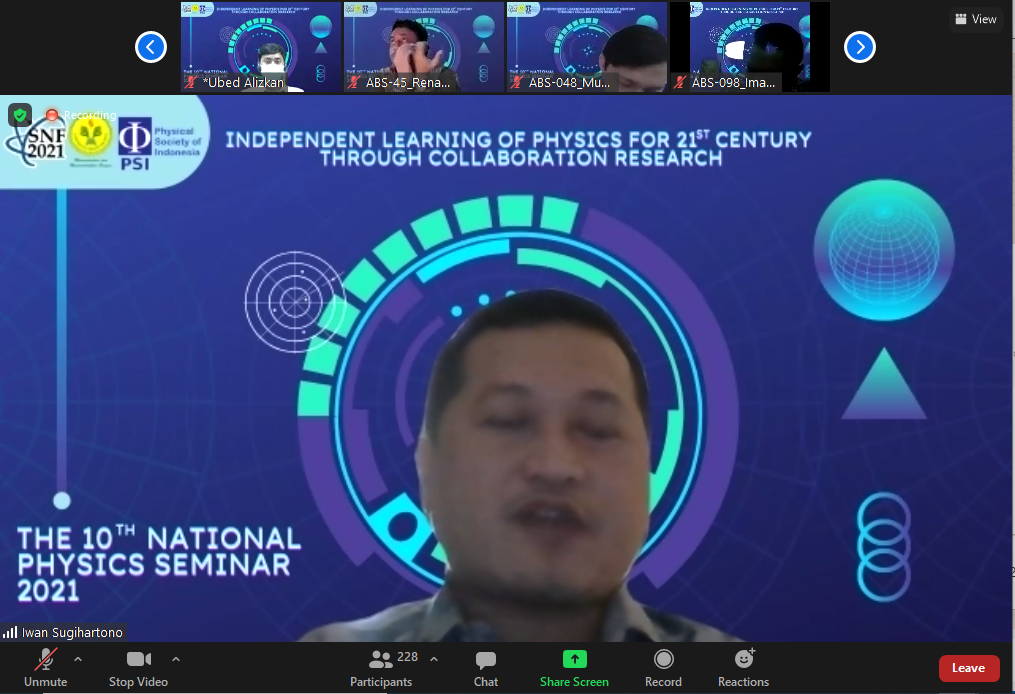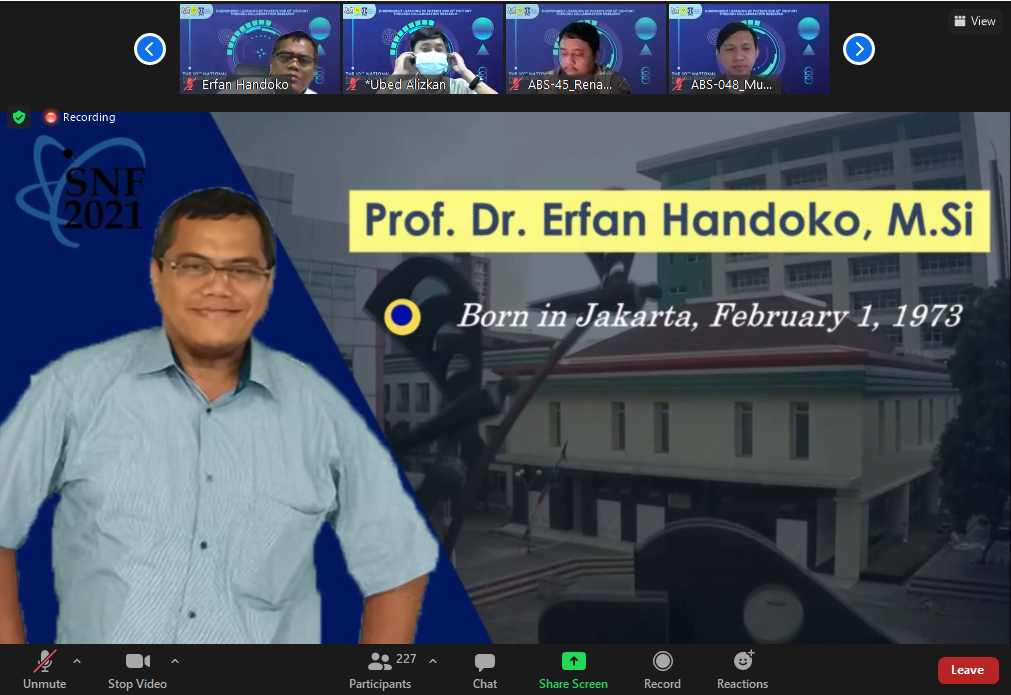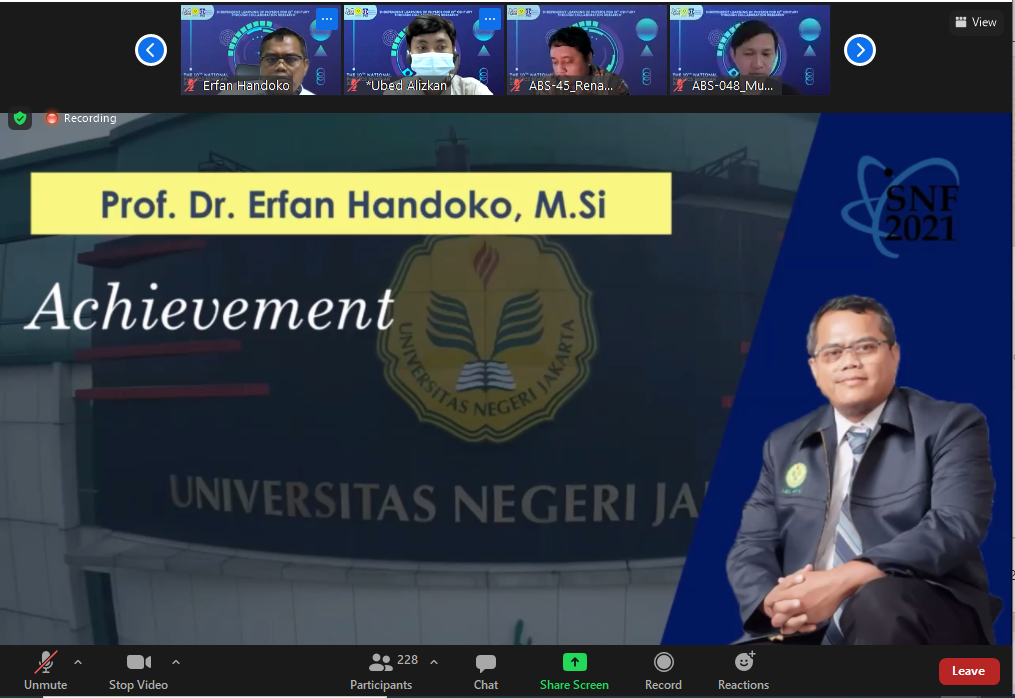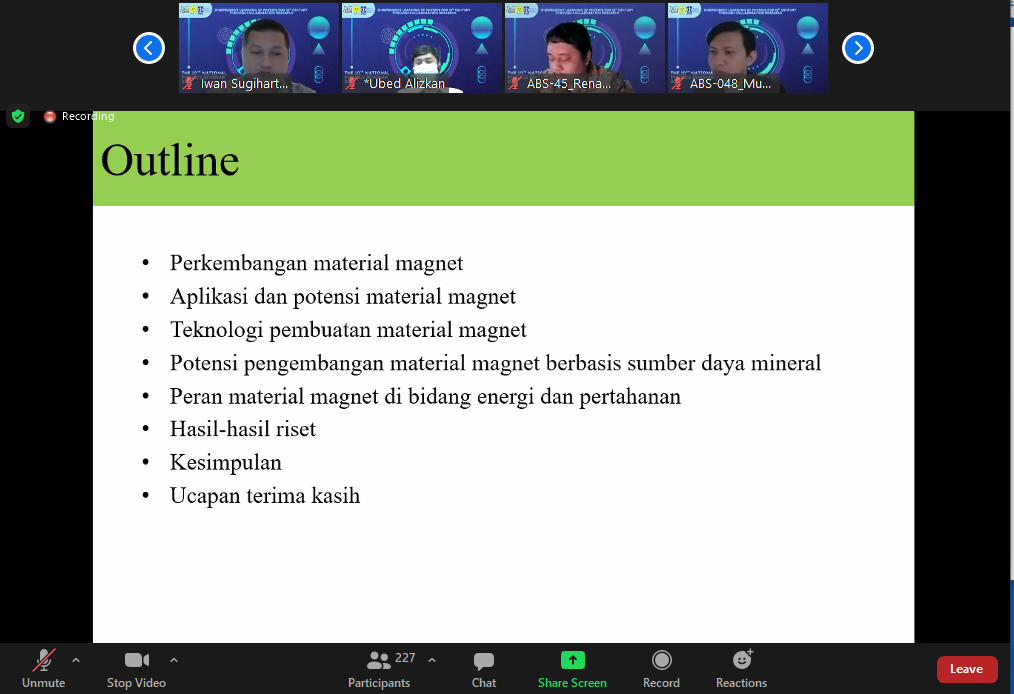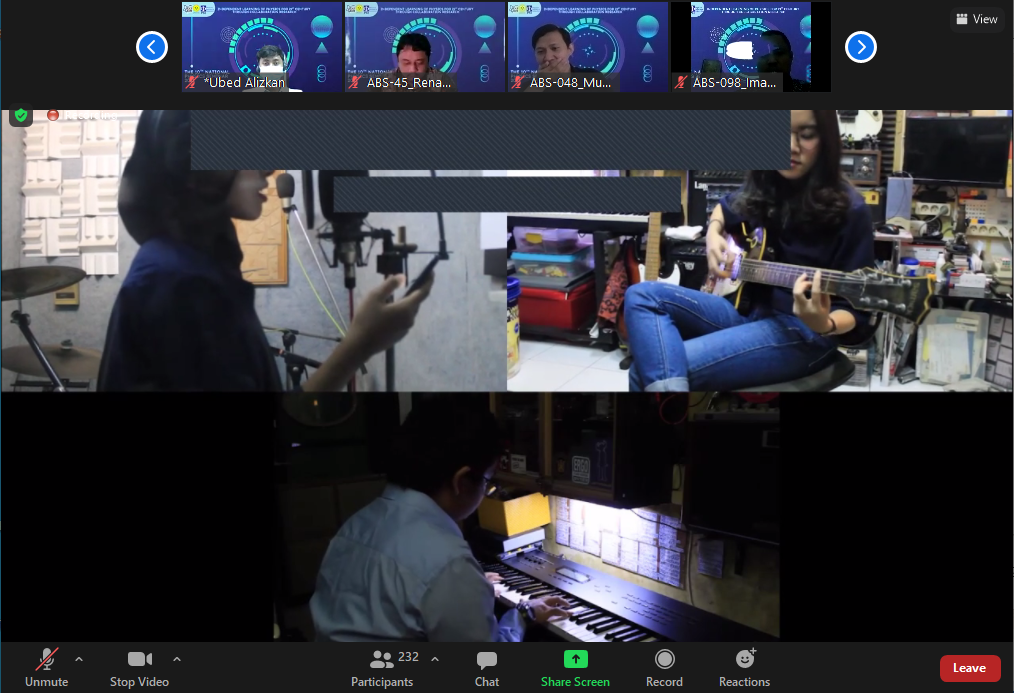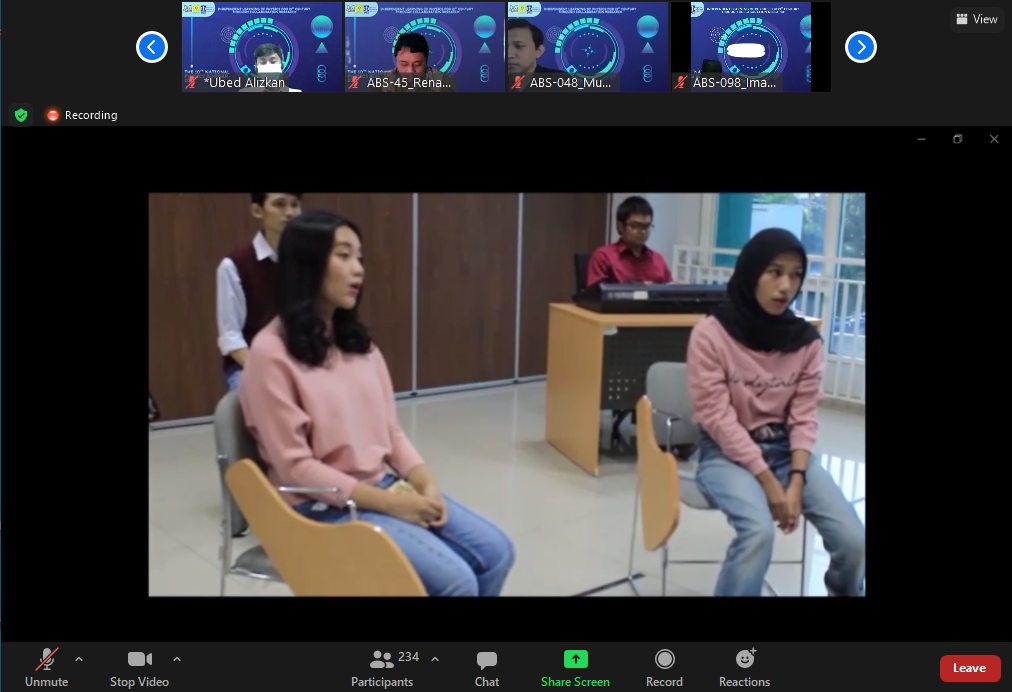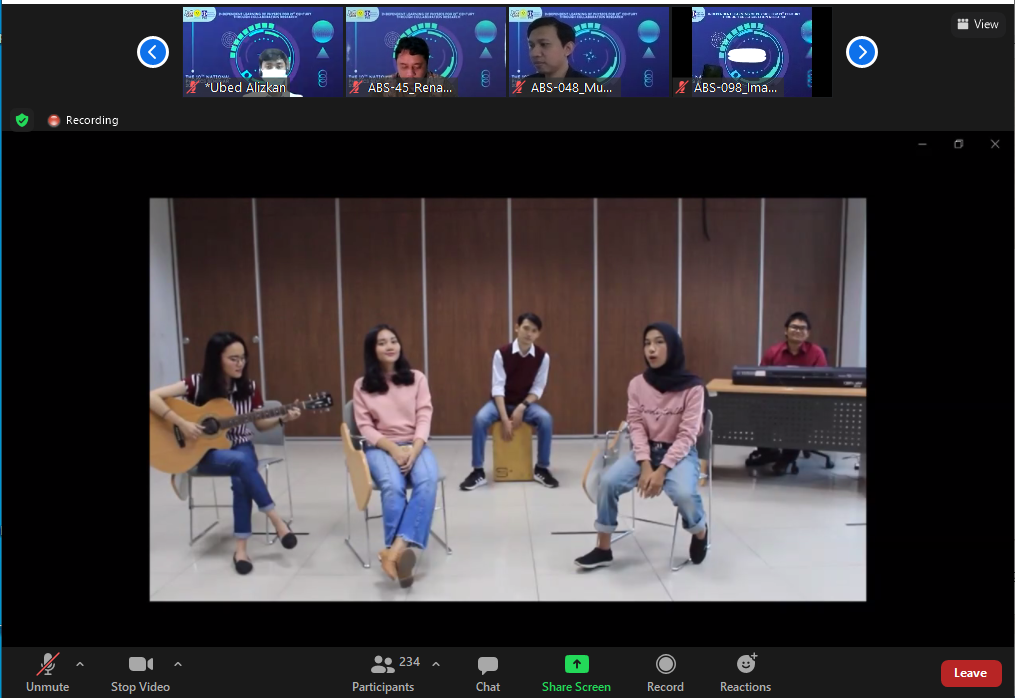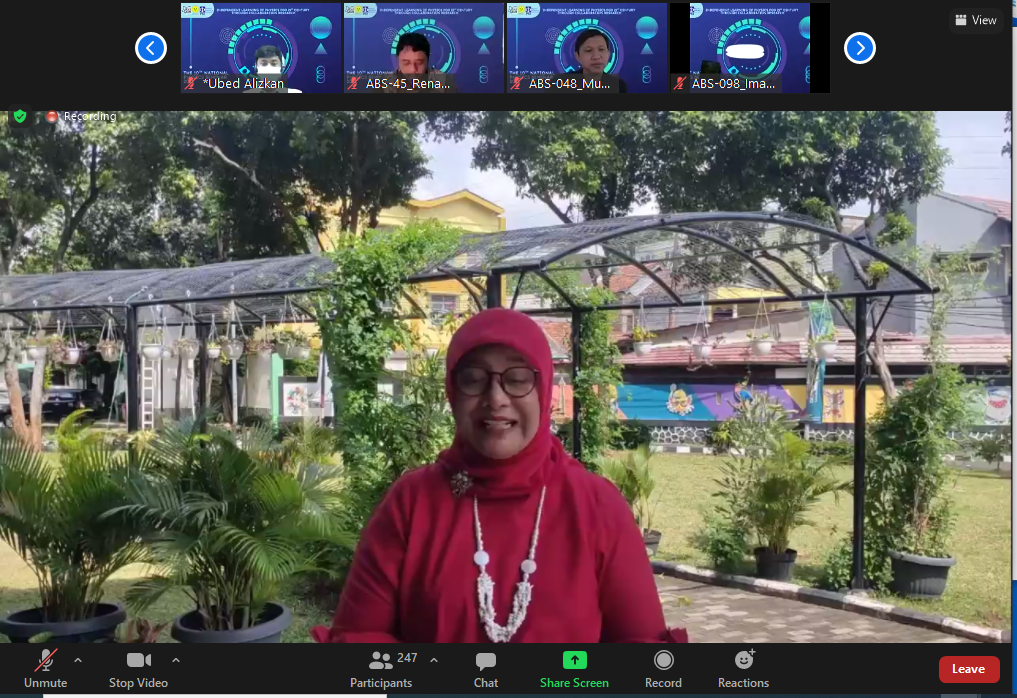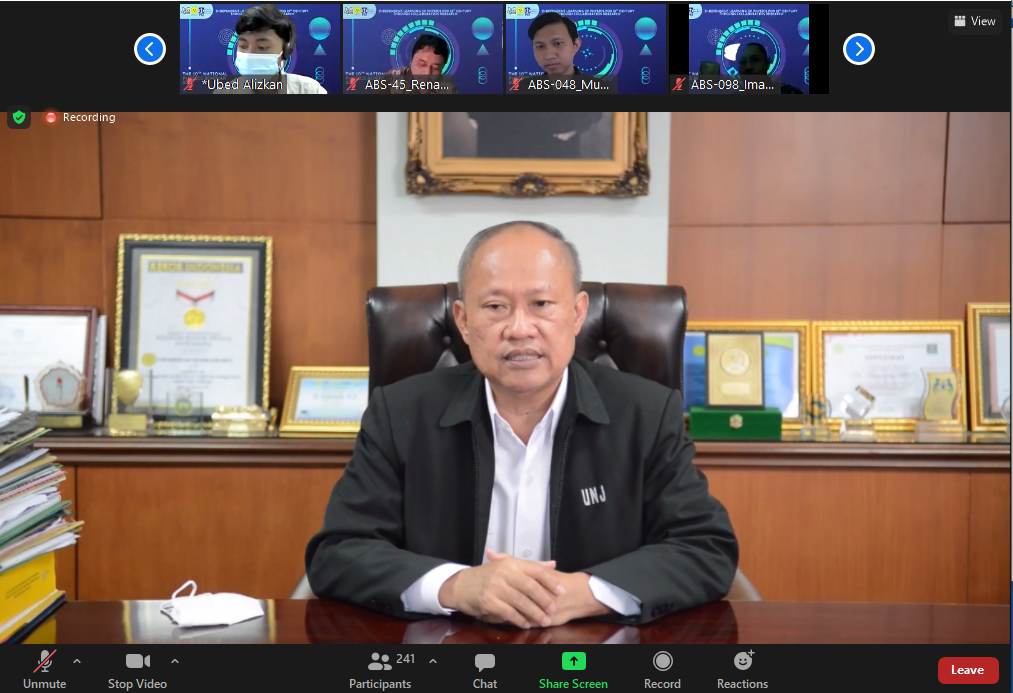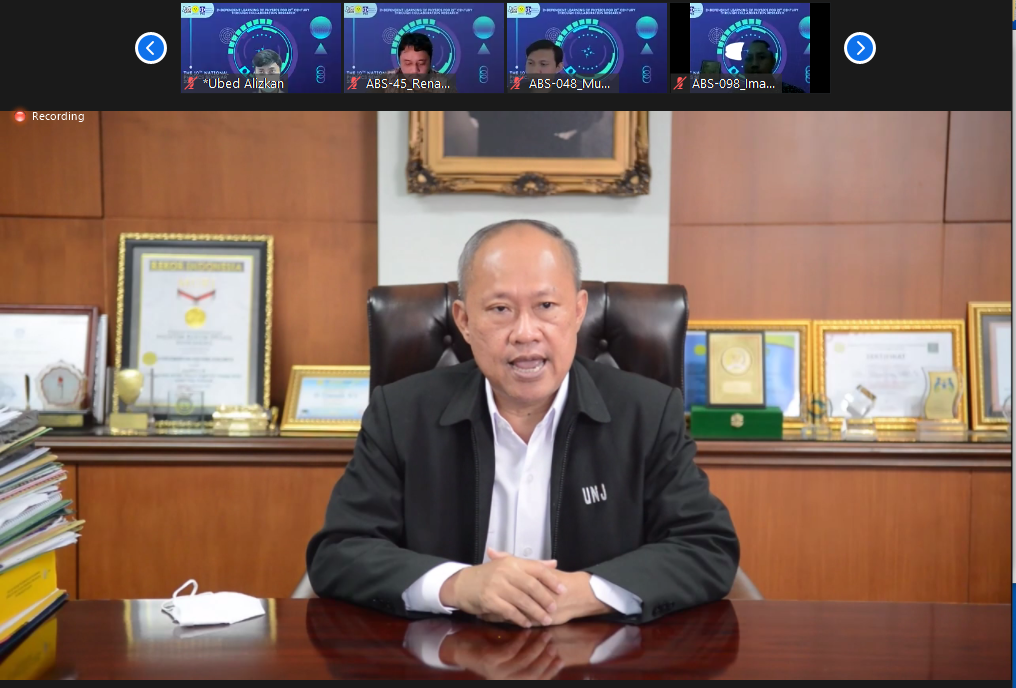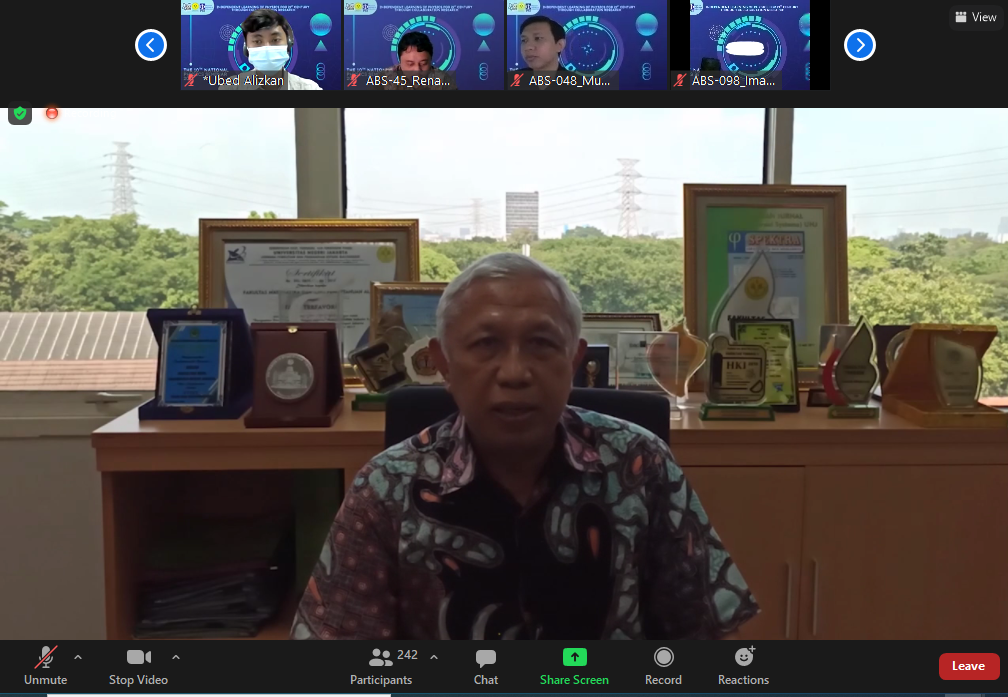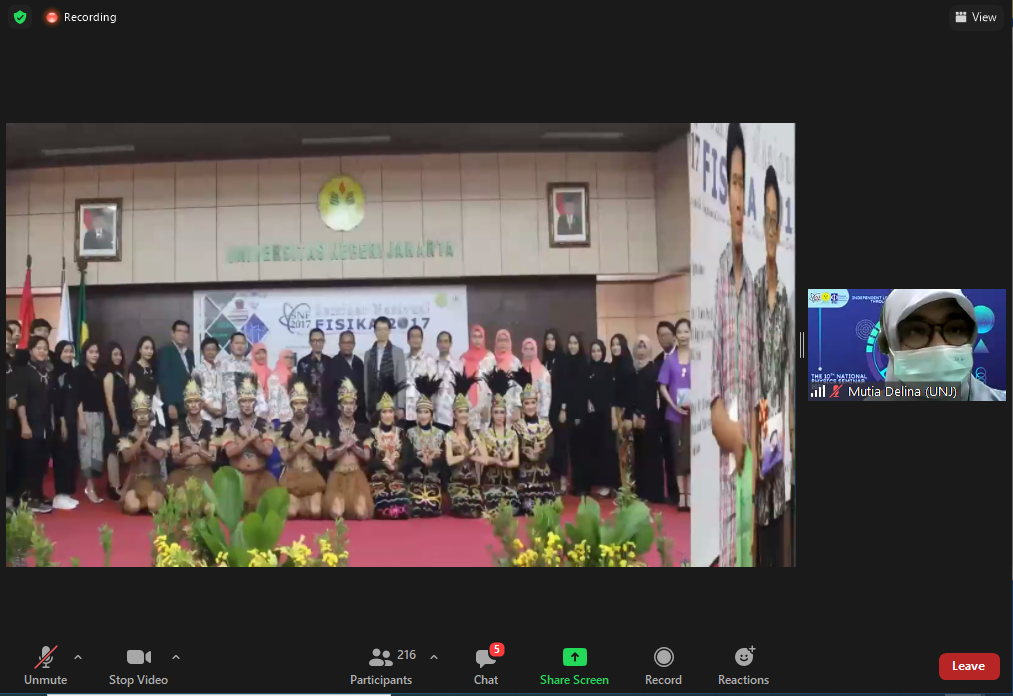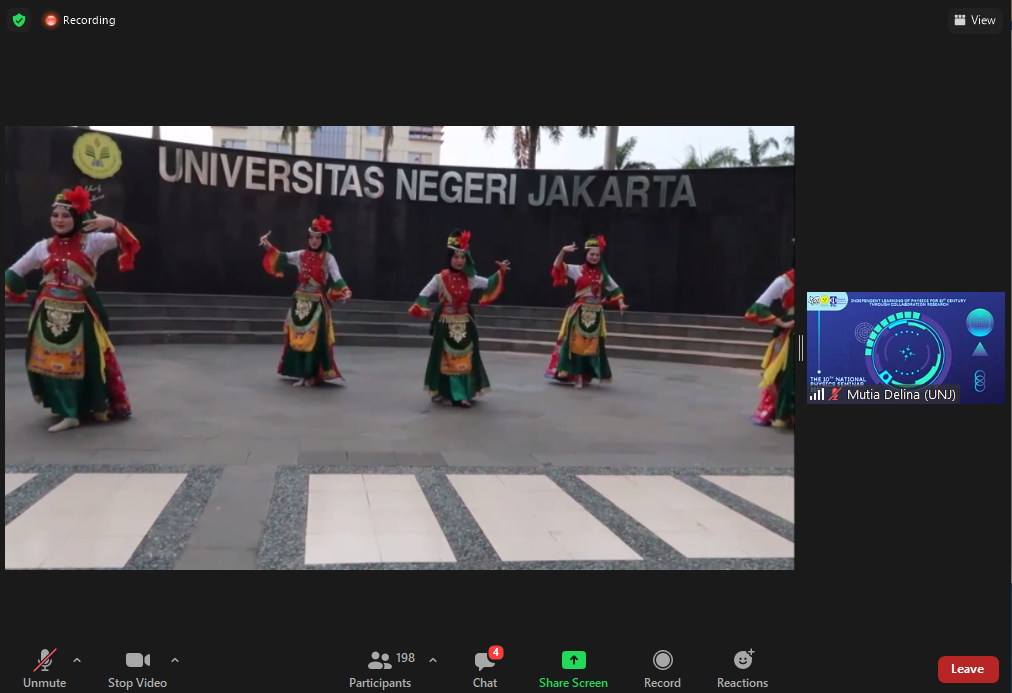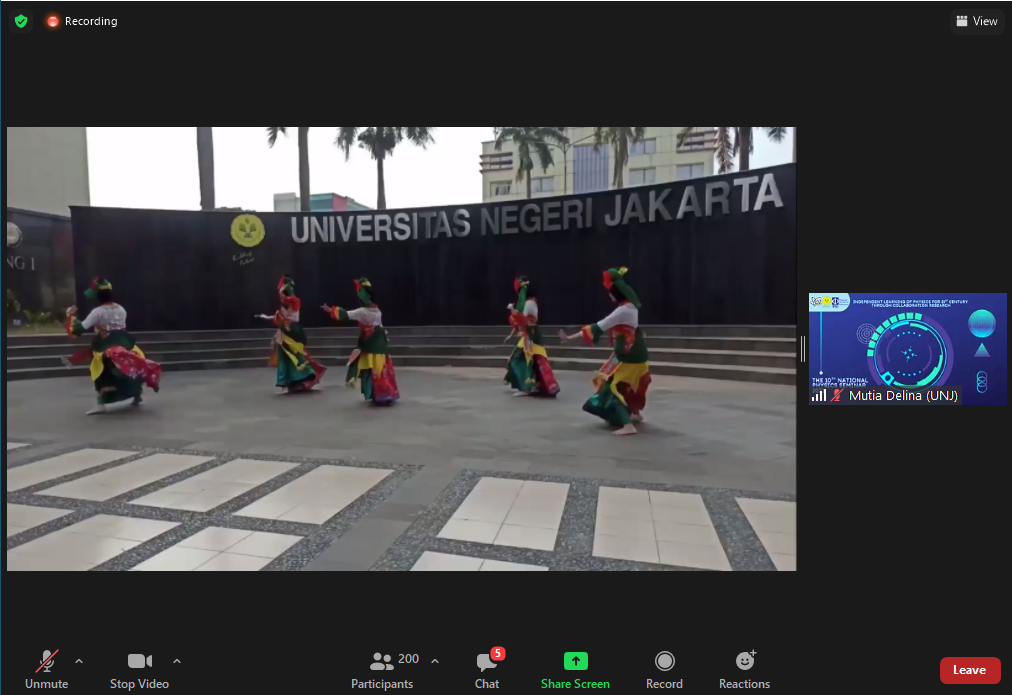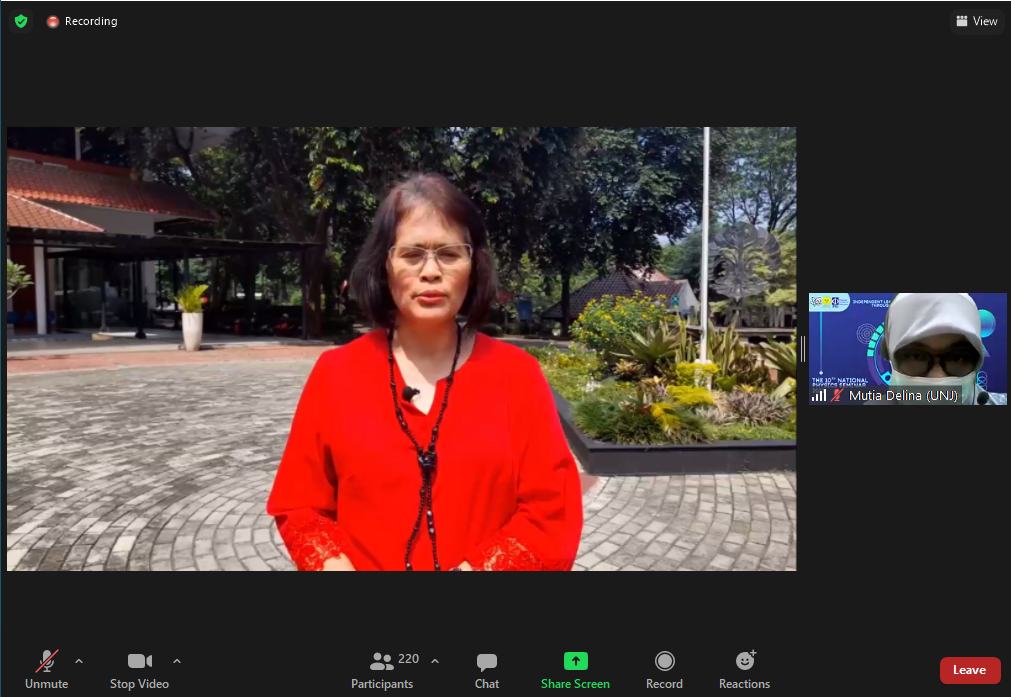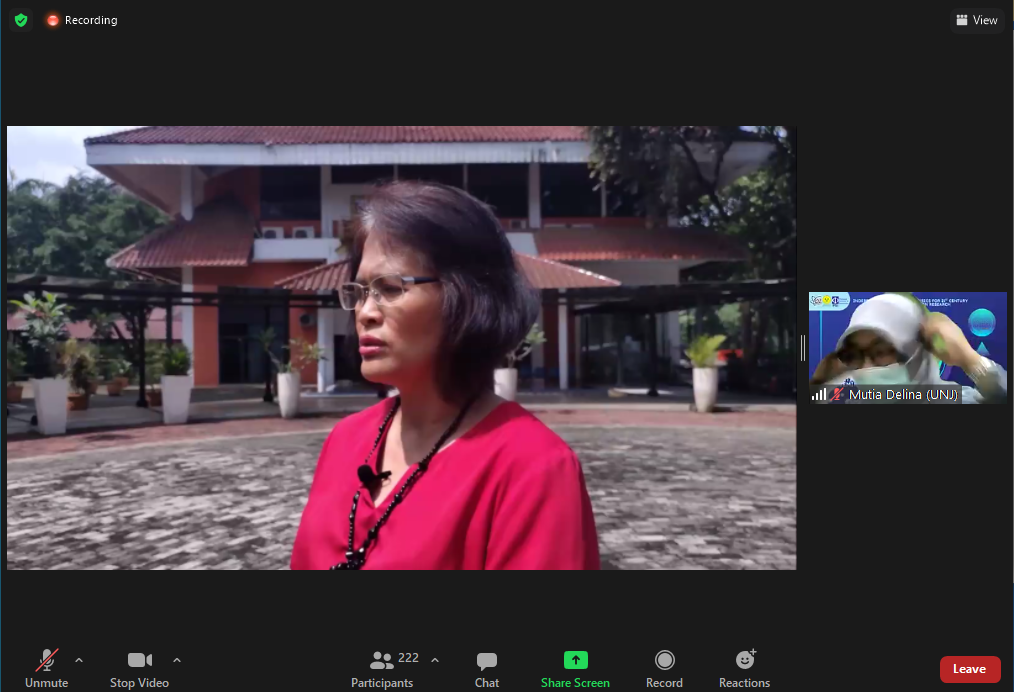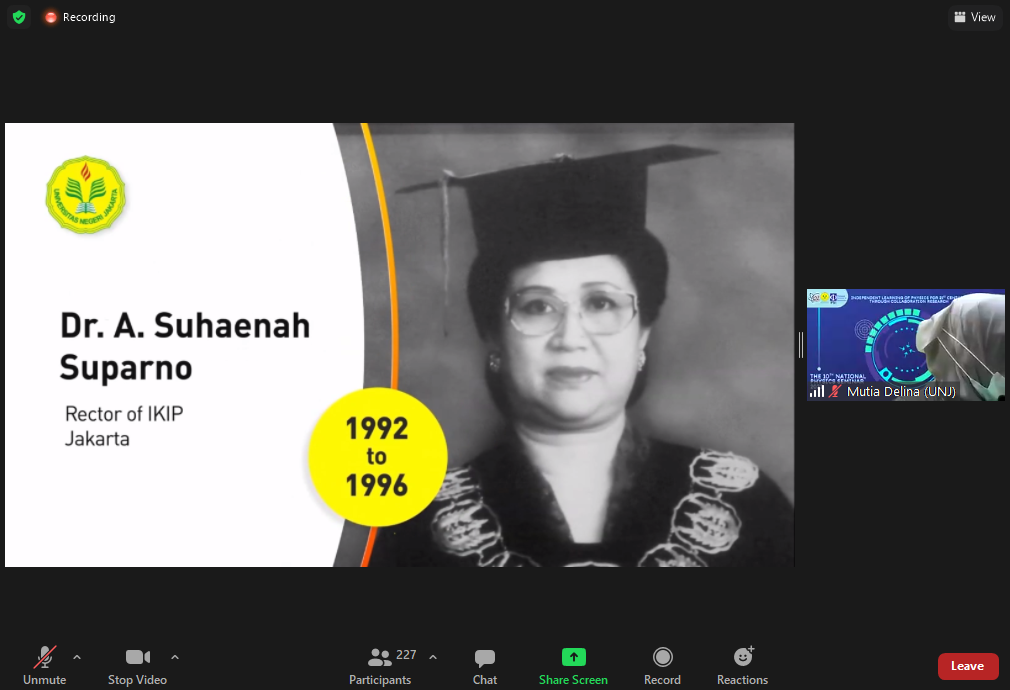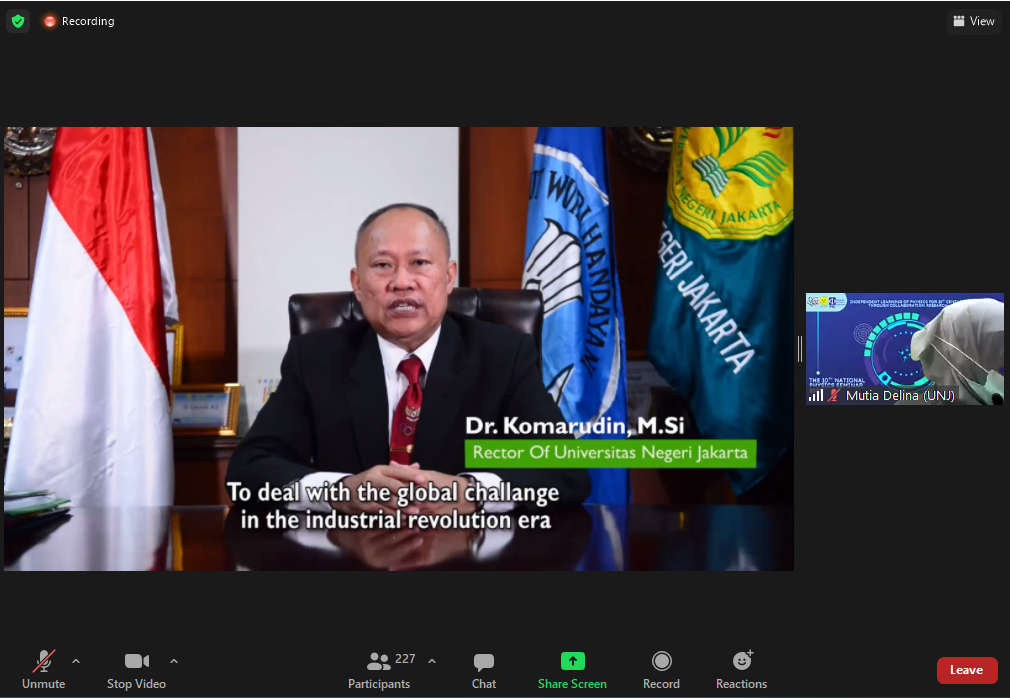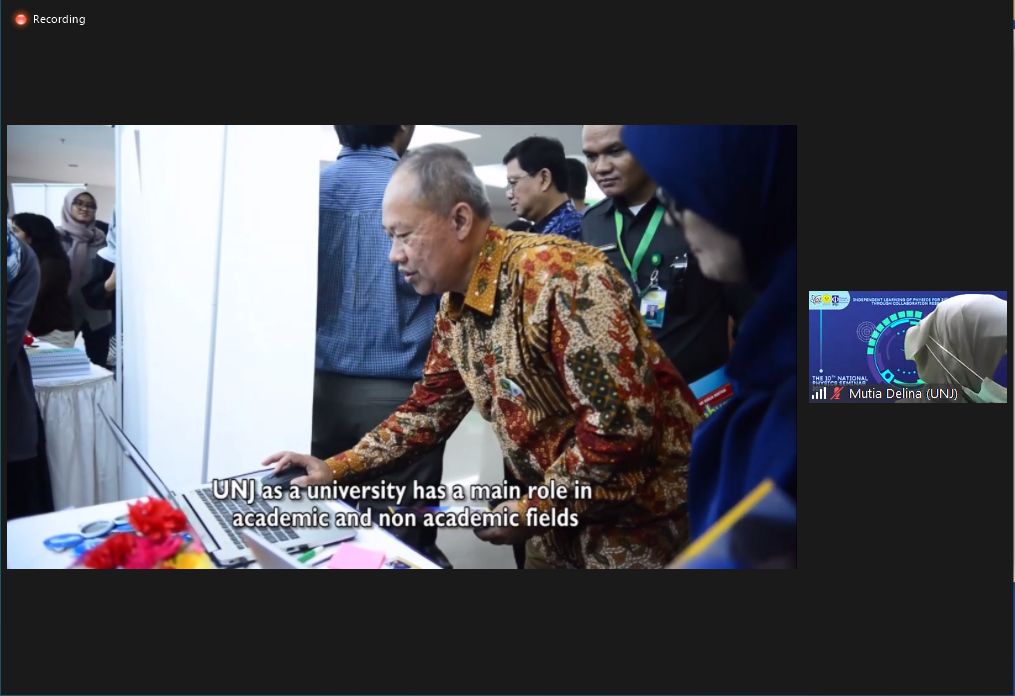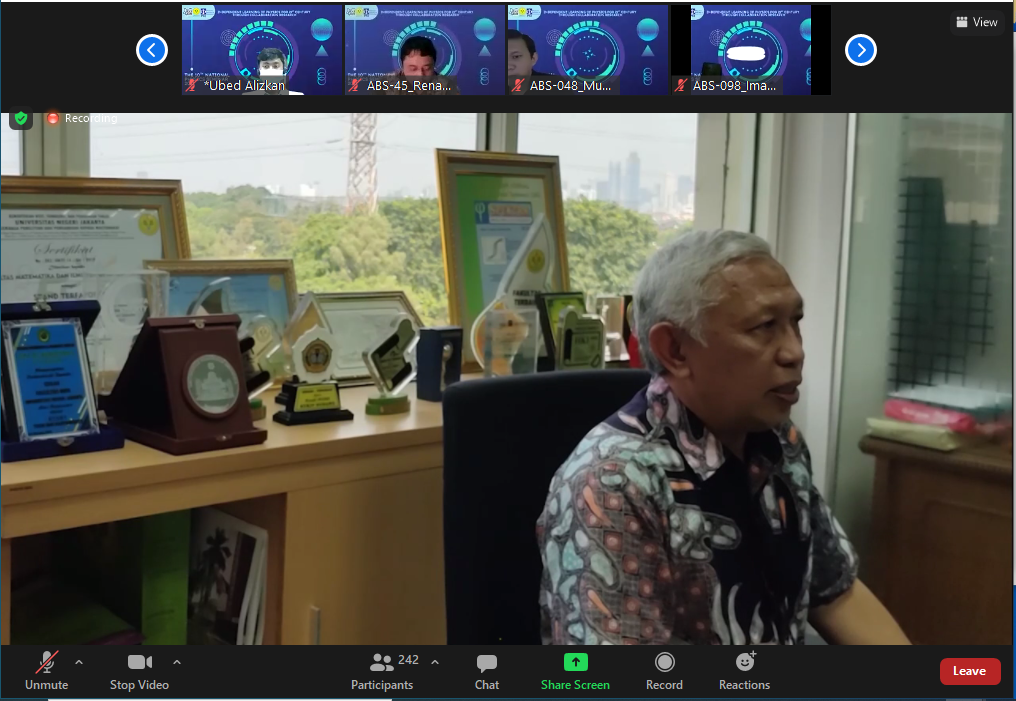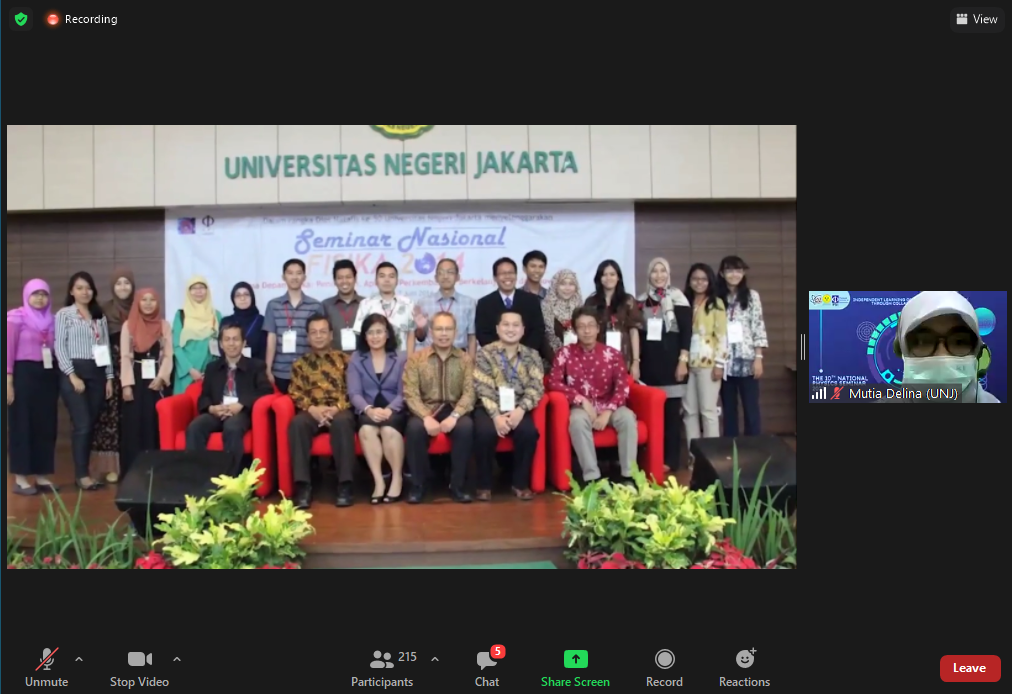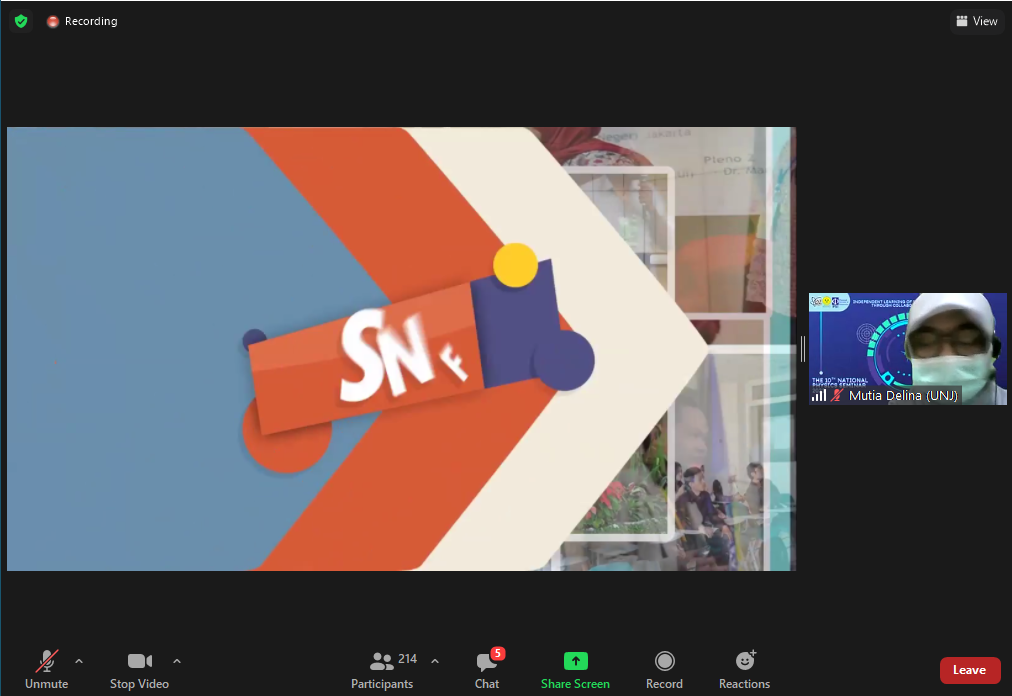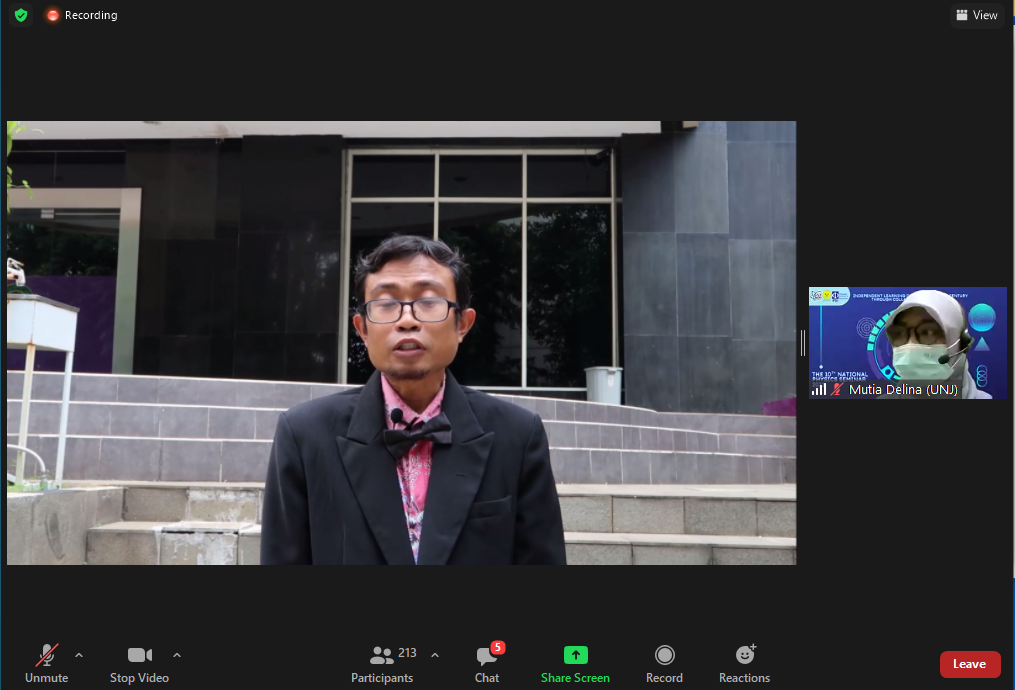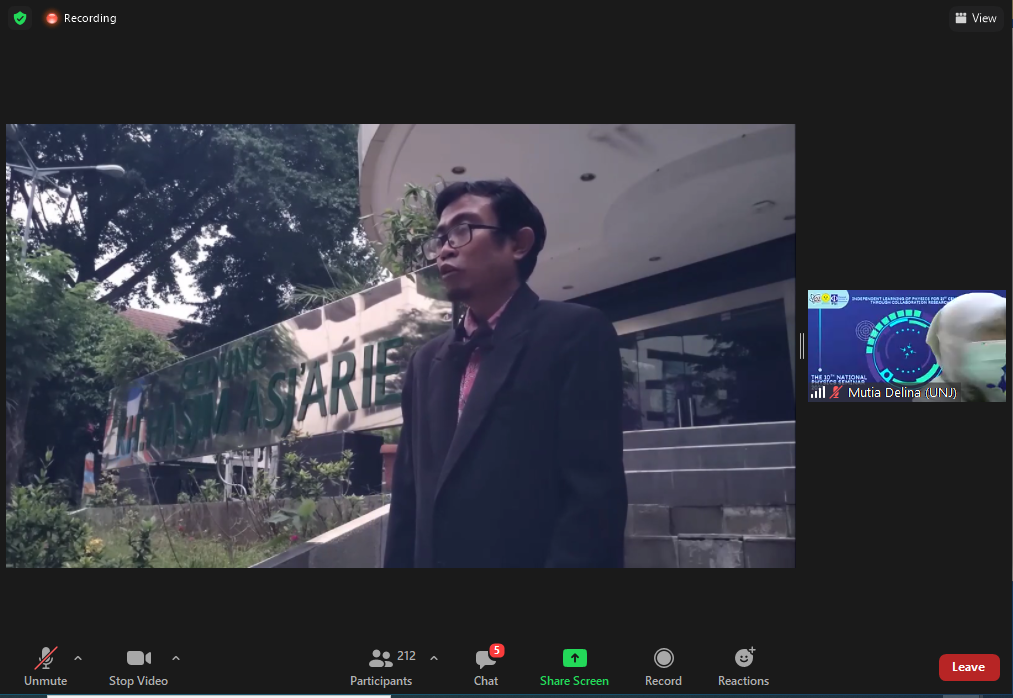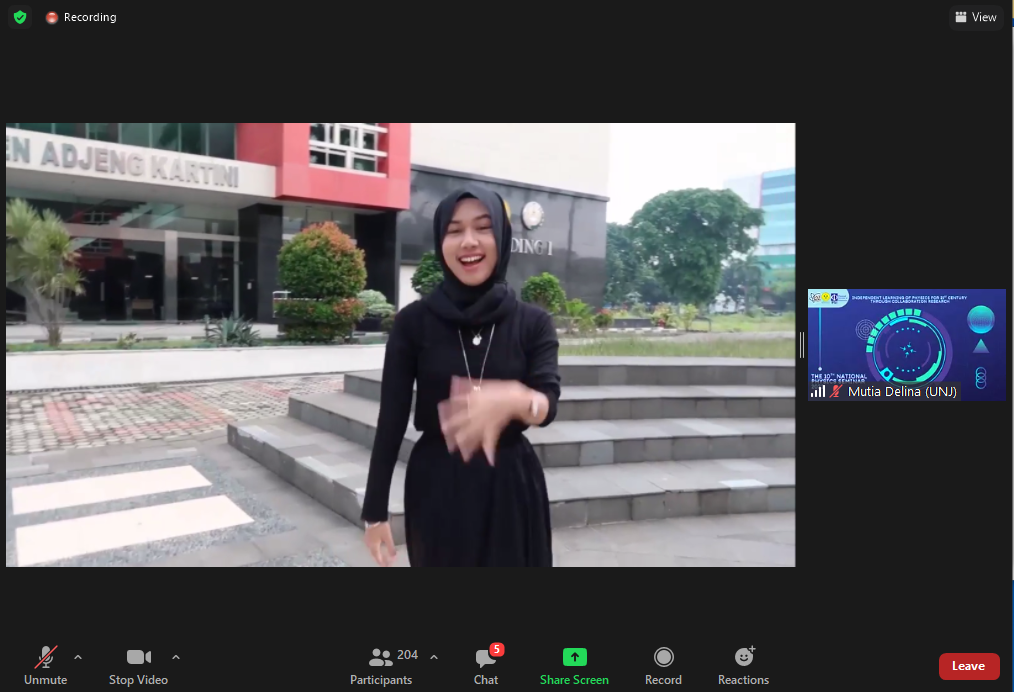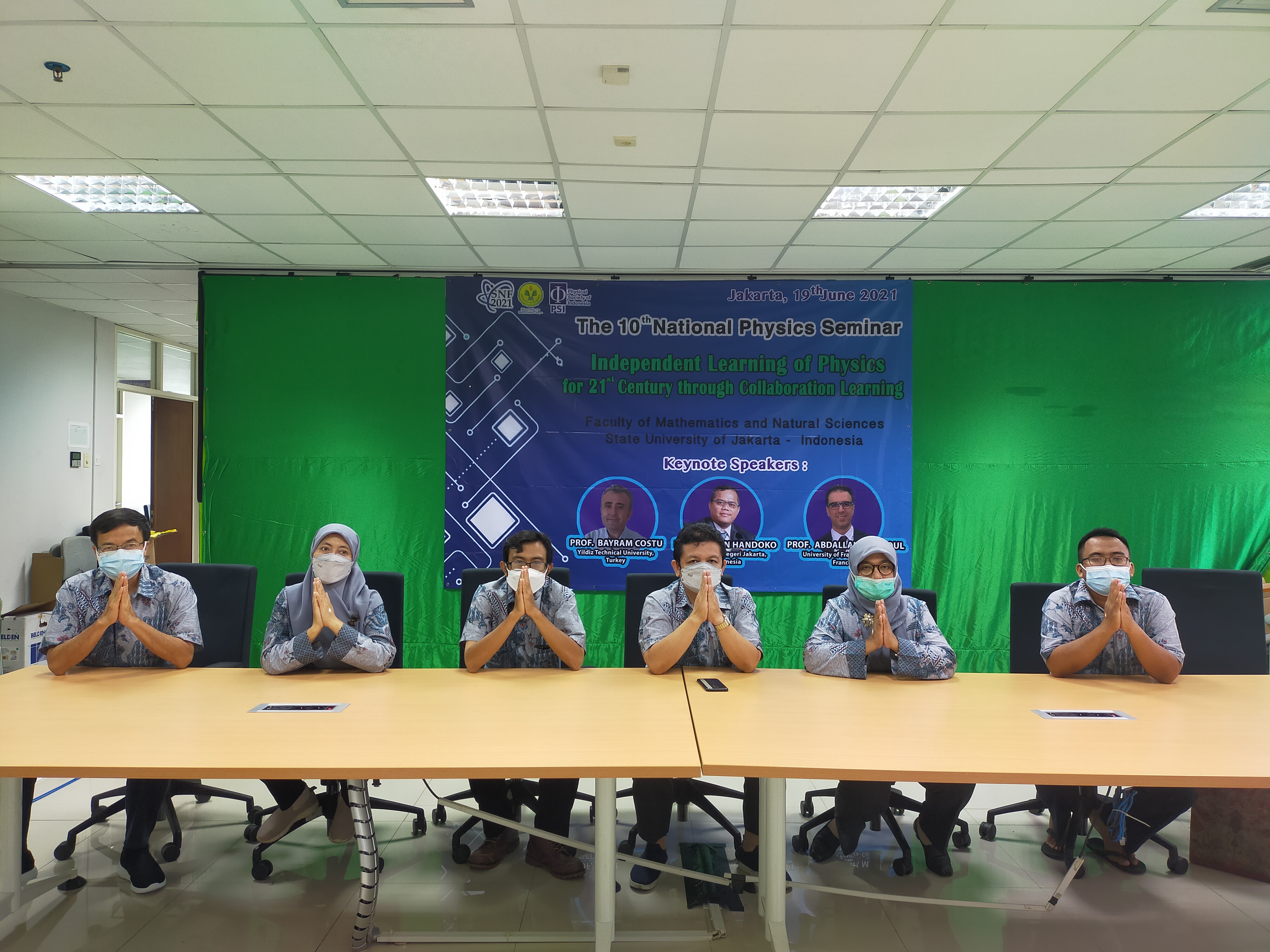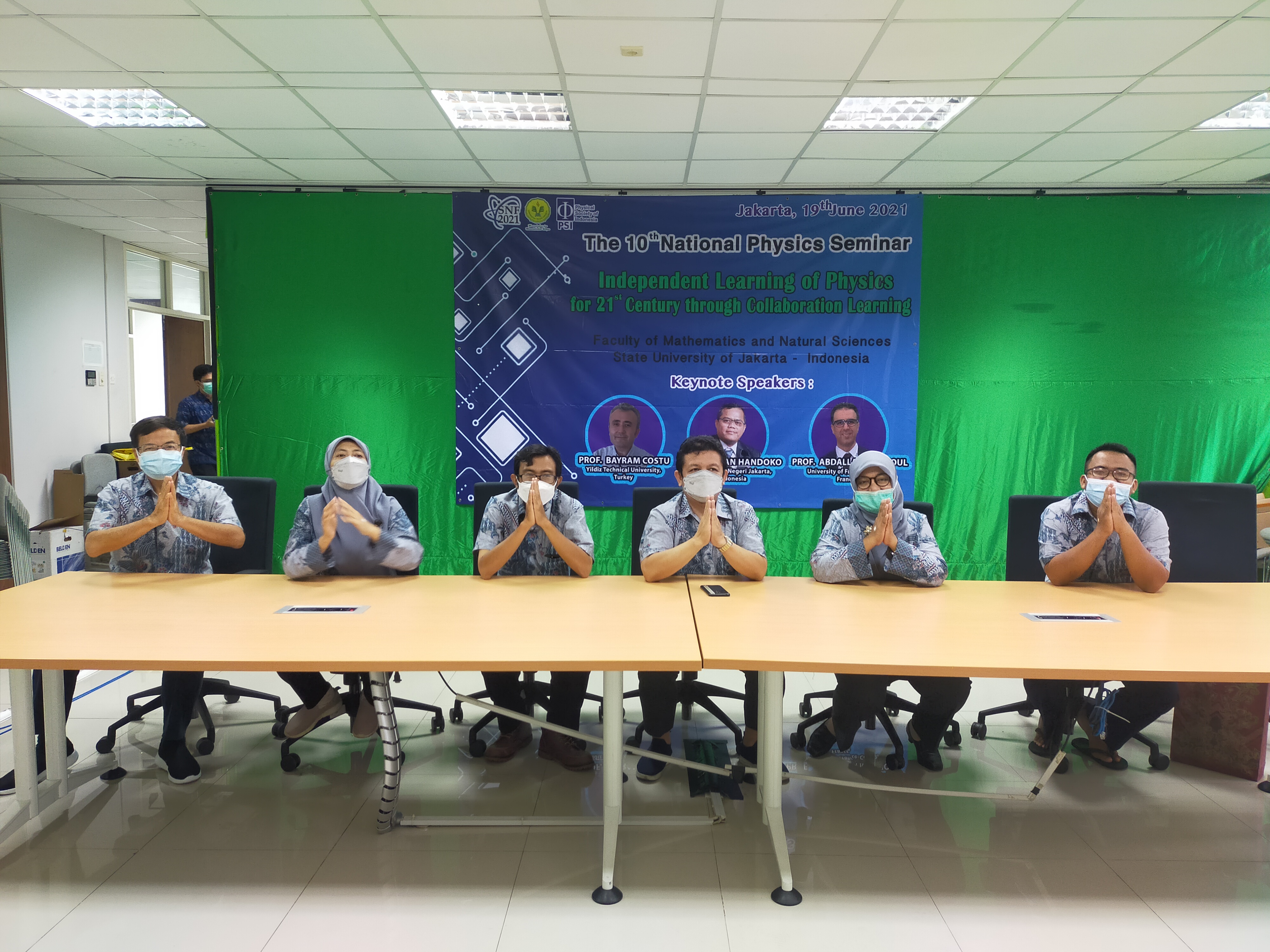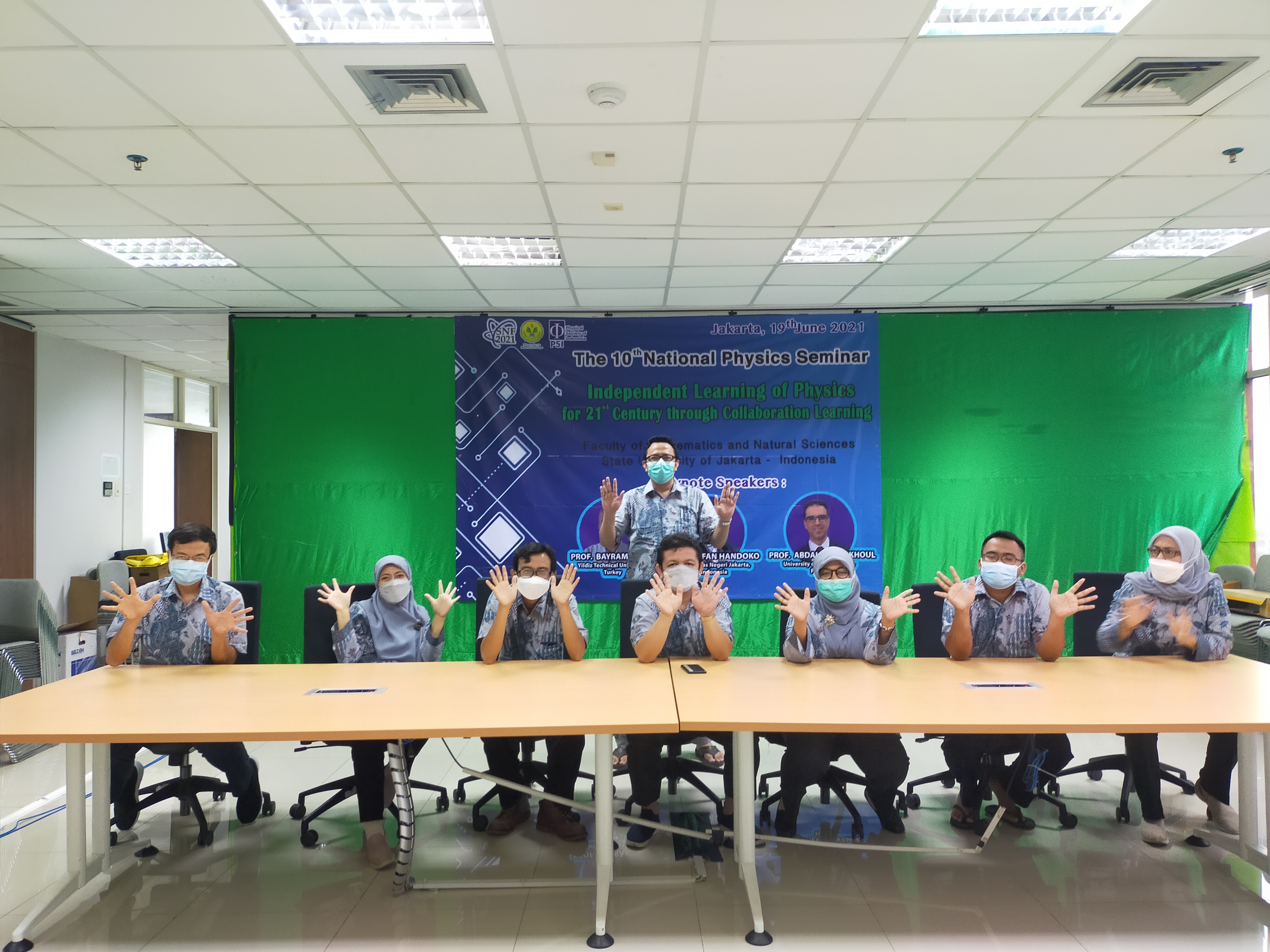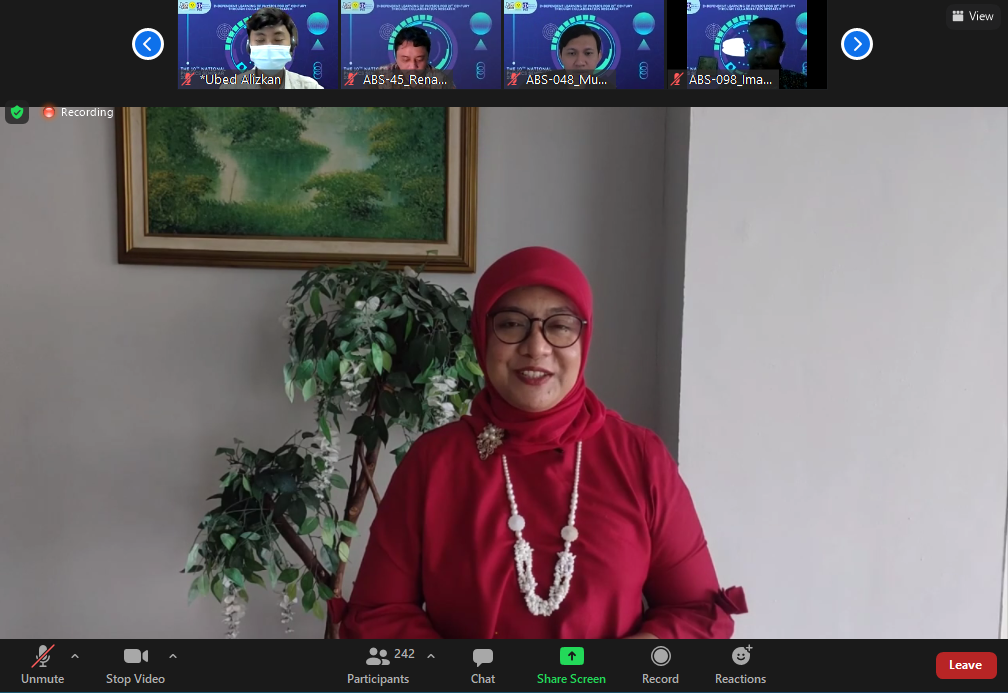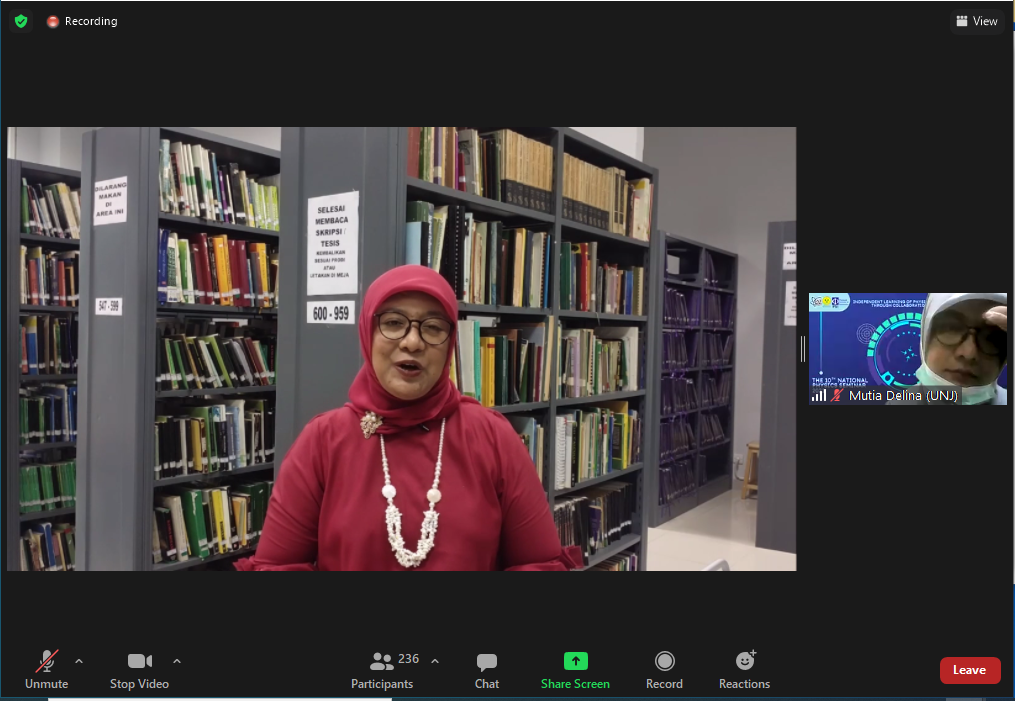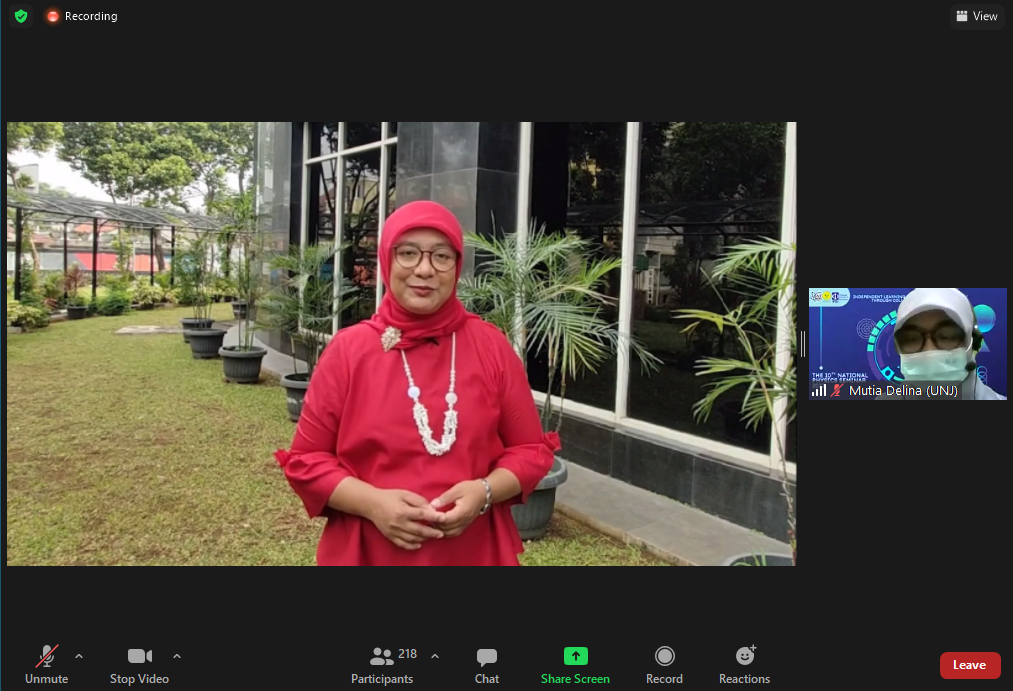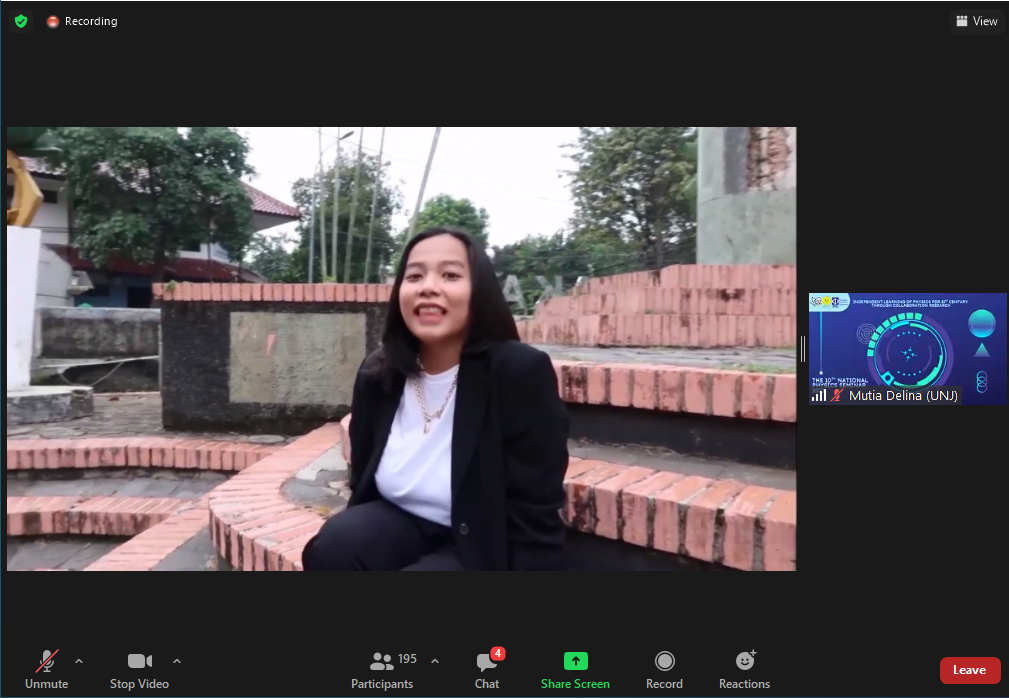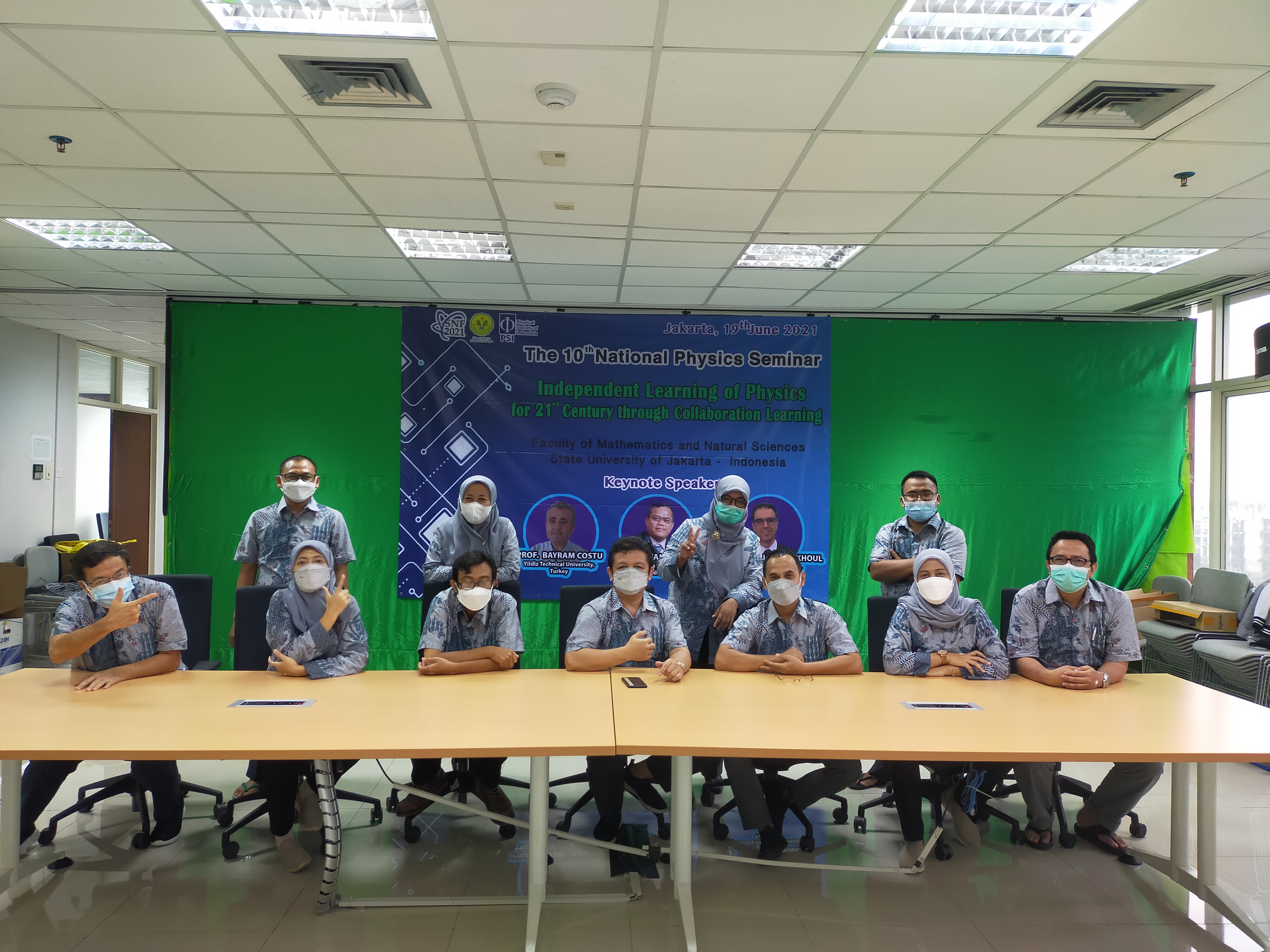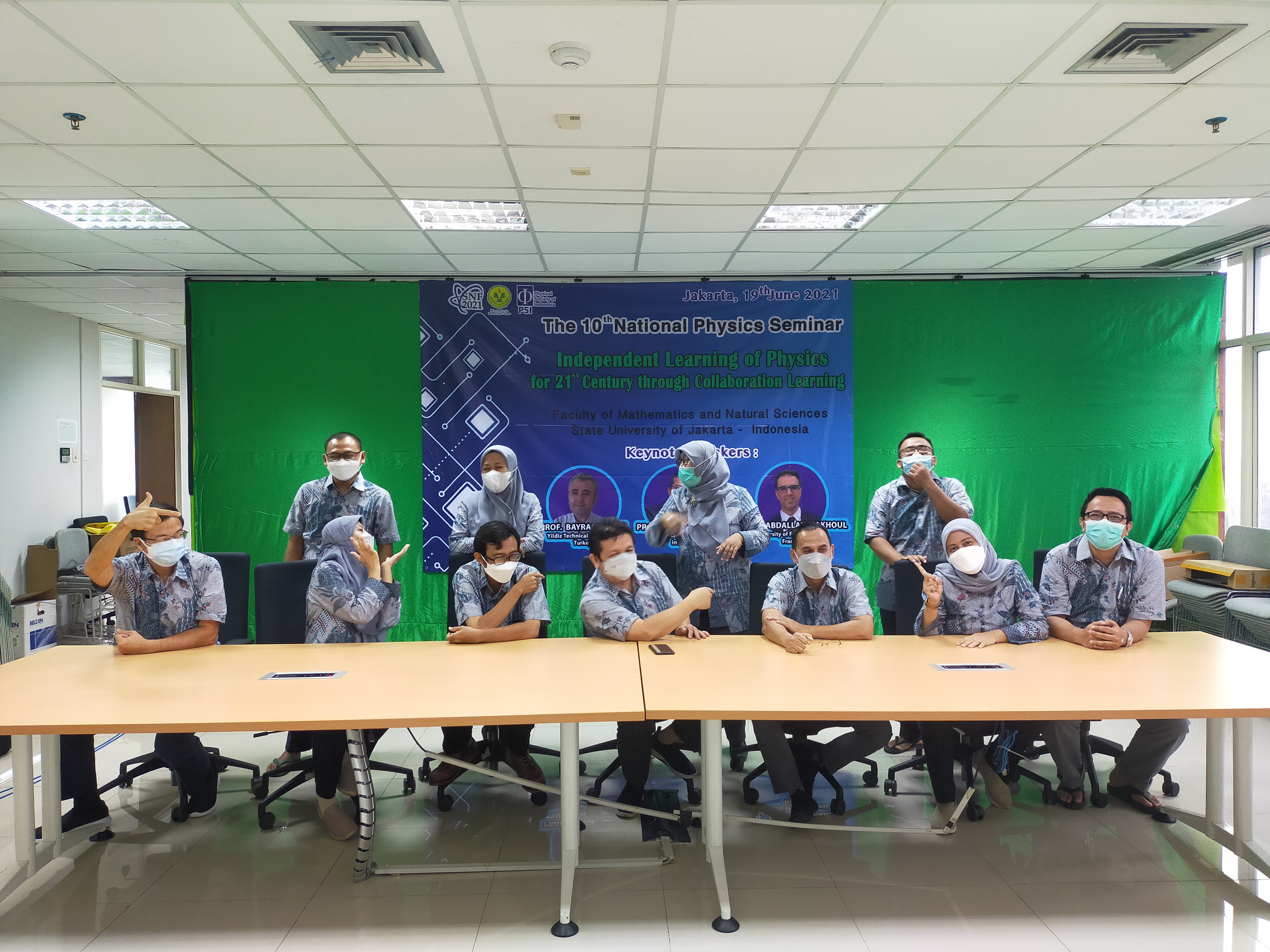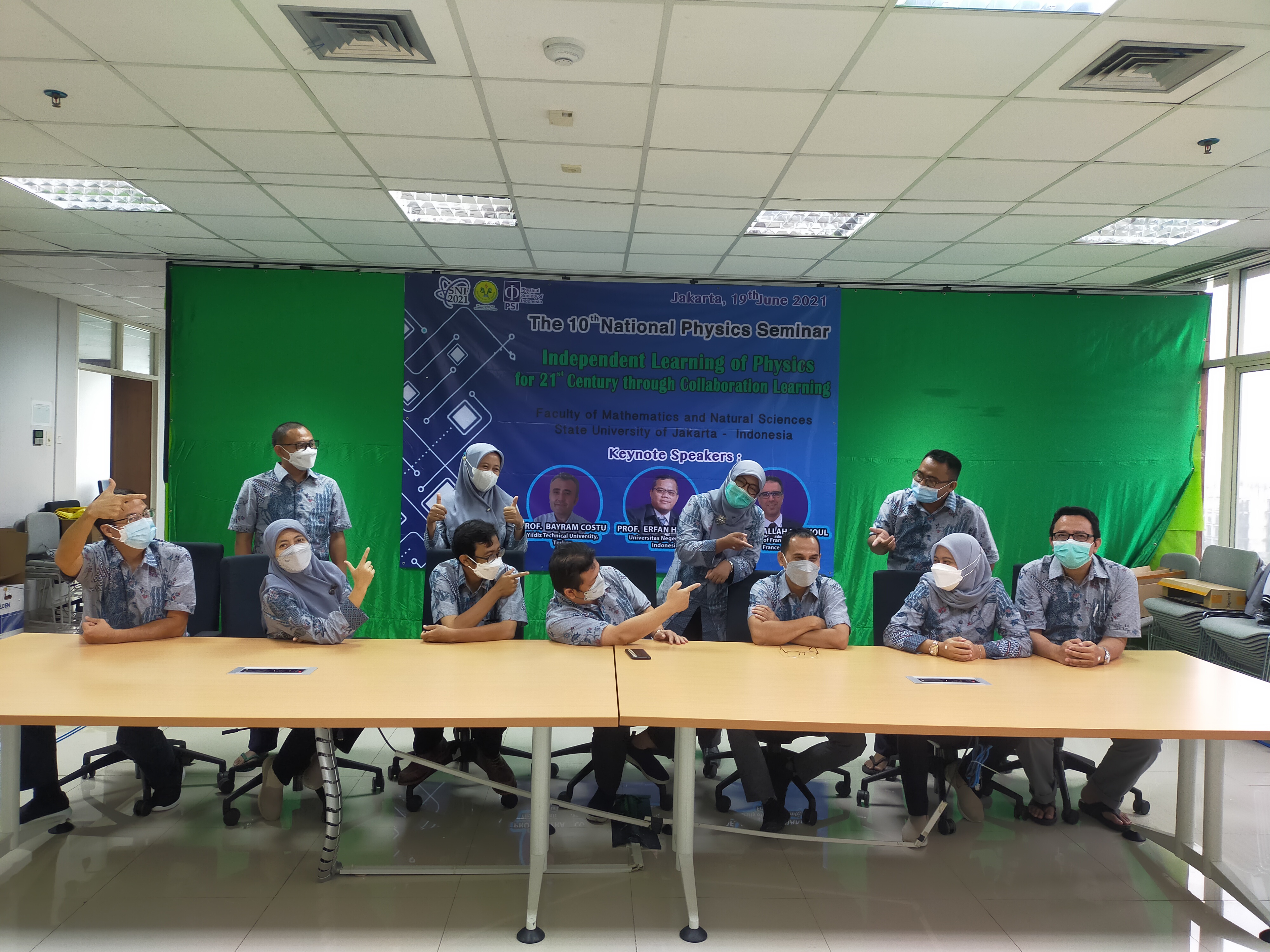Seminar Nasional Fisika (National Physics Seminar) 2021: “Independent Learning of Physics for 21st Century through Collaboration Research”
The Jakarta State University (UNJ) physics study and physics education program again held the 10th National Physics Seminar (SNF) on June 19 2021 online using the Zoom application. This is because the spread of the Covid-19 virus is still ongoing in Jakarta and its surroundings. As in previous years, SNF continues to collaborate with the Jakarta and Banten branches of the Physical Society of Indonesia (PSI). This year, the number of seminar participants was 217 participants from various universities.
This year’s SNF has the theme “Independent Learning of Physics for the 21st Century through Collaboration Research” and was opened by UNJ Chancellor Prof. Komaruddin online. The seminar was then continued by presenting several remarks, namely from the chairman of SNF-2021 Dr. Teguh Budi Prayitno, Dean of FMIPA UNJ Dr. Adisyahputra, and Chairman of the Jakarta and Banten branches of PSI Dr. Ariadne L. Juwono. The SNF event itself was moderated by Dr. Mutia Delina. To fill in the change of events, the SNF committee presented some light entertainment, either in the form of dances or songs performed by UNJ physics students.
The first panel session was presented by Prof. Erfan Handoko from UNJ physics, moderated by Dr. Iwan Suguhartono from Physics UNJ. This session takes place at 09.00-10.00. In his presentation, Prof. Erfan explained his research in the form of development and application of hexagonal ferrite magnetic materials. One of the advantages of this type of material is the low cost of production and abundance in nature so that the application development of this material increases significantly. According to Prof. Erfan, one of the important applications of this material is for the absorption of electromagnetic waves in the world of aviation and multiferroic material applications.
After finishing the first panel session, the event was continued with a parallel session for each participant which started at 10.00. This session divides 10 parallel sessions which are moderated by a physics lecturer who is assisted by a student as an operator. In this session, each participant presented their research results online via Zoom media within 5 minutes. Then, a question and answer session was held for 2 minutes. In addition, the moderator also gives value and announces the best presenter in each room. This parallel session ends around 12.00.
The second panel session was presented by Prof. Bayram Costu moderated by Riser Fahdiran, M.Sc. from UNJ Physics. This session takes place at 13.00-14.00. Prof. Costu is a professor at Yildiz Technical University in the field of physics education. At the seminar this time he conveyed his ideas regarding the simple concept of the oil drop experiment. This experiment was first carried out by Robert A. Millikan in the early 1900s to determine the magnitude of the electric charge. To carry out this experiment requires very careful calculations and supporting equipment. As a result, these experiments can only be carried out by people who are experts in their field and are very difficult for ordinary people to do. In this session, Prof. Costu conveyed a very simple method to explain how to get the amount of electric charge intended for students. This is due to the absence of textbooks that support this simple concept.
The third panel session was given by Prof. Abdallah Makhoul moderated by Dr. Mutia Delina, a physics lecturer at UNJ. This session takes place at 14.00-15.00. Prof. Abdallah is a professor at the University of France-Comté in the field of information technology and data management. He explained the importance of information technology which involves the transfer of quite a lot of data. This is related to the network system and adequate storage media. Currently, several data providers are widely used, such as iCloud, Google Drive, and so on. However, this must also be accompanied by an adequate internet connection system. This is very important for applications in the medical field. It aims to record a person’s medical history in sufficient time which can be accessed easily.
The papers presented will be published in one of the following publications
- Journal of Physics: Conference Series (scopus indexed)
- UNJ Spektra Spektra (Sinta 3)
- SNF National Proceedings (Google Scholar indexed)
In addition, this is the third year that SNF articles will be published in reputable international proceedings (scopus indexed) by the Journal of Physics: Conference Series (JPCS)
Documentation can be seen on the website https://snf2021.snf-unj.ac.id
